SparkTalks Presenter Profiles | Feb. 2024
Meenakshy Aiyer, MD, MACP, MHPE Heading link

Regional Dean and Professor, College of Medicine Peoria
External Clinical Partnerships in Peoria
Bio: Meenakshy Aiyer, MD, MACP, MHPE, serves as the eighth regional dean of the University of Illinois College of Medicine Peoria. She received her medical degree from the Madurai Kamaraj University and completed her internal medicine residency at the University of Louisville and UICOMP. An excellent clinician and nationally recognized medical educator, she has served as a hospitalist in the department of medicine. Her teaching roles included resident supervision, serving as medicine clerkship director and associate dean of academic affairs. A champion for medical student education and curriculum development, she led the curricular transformation efforts at UICOMP and established several innovative educational programs. She chaired a task force to help develop a national curriculum for sub-internships at medical schools across the country, which earned her the Louis Pangaro Education Program Development Award. She was selected to participate in Executive Leadership for Academic Medicine and President’s Executive Leadership Program. She has received other awards, including the Raymond B. Allen Golden Apple Award and the Illinois Laureate Award from the Illinois Chapter of the American College of Physicians.
Presentation Title: External Clinical Partnerships in Peoria
Abstract: Strategic partnerships is one of the strategic initiatives for the College of Medicine. Enhancing existing and pursuing new partnerships is critical to advancing the mission of College of Medicine across all its campuses.
As one of the college’s regional campuses, the University of Illinois College of Medicine Peoria is the core of the Greater Peoria health care ecosystem. As educators, clinical care providers, innovators and researchers, UICOMP serves as the catalyst that drives the future of health care in the region while demonstrating regional and global leadership. Strategic partnership is critical for the success and growth of this campus. Strategic partners for UICOMP include health care systems like OSF HealthCare (headquartered in Peoria), Carle Health Greater Peoria, Graham Healthcare, physician practice groups that provide service across central Illinois, and institutions of higher education like Bradley University. In addition, UICOMP operates collaboratively in the midst of multiple stakeholders (UICOMP departments, community, UIC, and U of I System) to create constructive opportunities that continually enhance mutual interests and competencies.
Strategic partnerships with the clinical affiliates have led to:
- Developing and providing high-quality medical education across the continuum from premedical education to undergraduate, graduate medical education and continuing medical education.
- Providing high-quality patient care by UICOMP faculty across the Central Illinois Region, especially in areas of pediatric subspecialty, adult infectious disease and mental health.
- Conducting federally funded research in areas of neuroscience and cancer.
- Actively engaging with the community to advance health equity in the region.
Looking forward, these strategic partnerships are important for fiscal sustainability of our organization. Furthermore, it is critical for workforce development and for the growth of the UICOMP clinical enterprise in downstate Illinois. Our shared goals and positive relationships yield direct and indirect value, are the mainstay of our growth and guarantee our sustainability. We are also known as trusted partners for research and innovation by our clinical affiliates, community partners and regional entities. This trust is based on our proven knowledge, capability, competence and performance. Finally, these partnerships are important as we strive to build our reputation and our brand through participative and purposeful networking. Our path forward includes expansion of partnerships locally and beyond. Collectively, this creates a synergy that not only elevates academic medicine in Peoria and within the College of Medicine, but it further fosters the enhancement and growth of the healthcare ecosystem in the region.
Watch the recording!
Sanjib Basu, PhD Heading link

UIC Distinguished Professor
Paul Levy and Virginia F. Tomasek Professor of Biostatistics, Epidemiology and Biostatistics
School of Public Health
Bio: Sanjib Basu is a UIC Distinguished Professor and holds the Paul Levy and Virginia F. Tomasek Endowed Professorship of Biostatistics. He leads the biostatistics section and co-leads the Population Health Analytics, Metrics and Evaluation Center in the School of Public Health at UIC. Basu is a fellow of the American Statistical Association, an elected member of the International Statistical Institute, a past president of the International Indian Statistical Association, and is currently serving as an editor and in the editorial boards of multiple journals. Basu graduated with a PhD in statistics from Purdue University and previously served as a presidential research professor and director of the statistics division in his previous institution.
Presentation Title: Integration of Hyperlocal Health Indicators in Multimodal Data Science
Abstract: This presentation is an outreach to UIC community for integration of hyperlocal health data in their work and research as part of a multimodal approach. It is increasing recognized that an individual’s health is determined primarily by social, economic and neighborhood factors that are outside of the health care system. The mission of the Population Health Analytics Metrics and Evaluation Center of the School of Public Health at UIC is to provide universal open access to hyperlocal data on health equity and social determinants of health. The PHAME Center, along with its partners, host the Chicago and Cook County Health Atlases, which provide integrated platforms for data access, advanced visualization, as well as data analytics for hundreds of health indicators. Integration of these hyperlocal data with data from other modalities (clinical, genetics, imaging, others) present significant opportunities for improved understanding of health, and at the same time, unique methodological challenges on data integration, generalizability and others for data science research.
Watch the recording!
Ana Bedran-Russo, DDS, MS, PhD Heading link
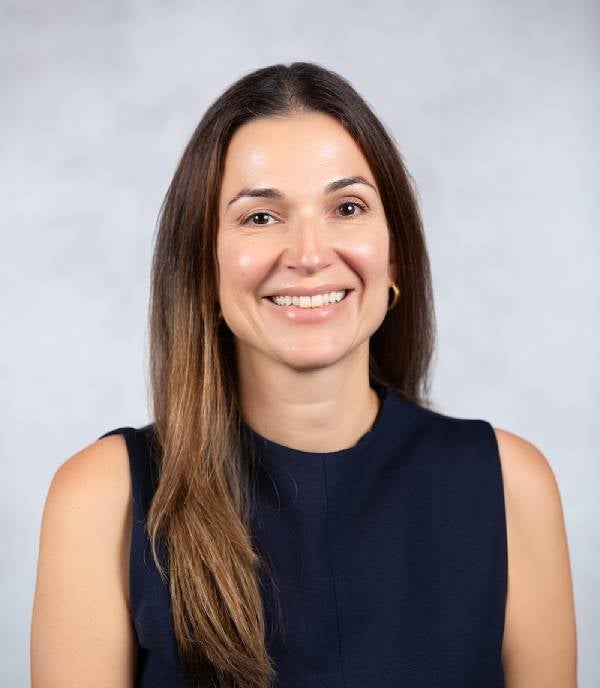
Associate Dean for Research, College of Dentistry
Distinguished Professor and Head, Department of Oral Biology
Presentation Title: Bioinspired Strategies for Development of Functional Biomaterials
Bio: Dr. Ana Bedran-Russo is the associate dean of research and distinguished professor and head of the oral biology department at the College of Dentistry. She is a clinician-scientist well-recognized in the field of basic research and clinical development of functional biomaterials. Her group pioneered the discovery of potent plant-derived phytochemicals as interventional biomaterials that has gained attention beyond the field of dentistry. She has published over 160 peer-reviewed articles. She has been continuously funded by NIH/NIDCR since she started her career at UIC in 2005. Bedran-Russo is a strong supporter of research and career training at all training levels and has directly mentored over 100 individuals, including undergraduates, MS- and PhD-degree seeking students, postgraduate trainees and junior faculty. She serves in many leadership roles in research and dental associations. She has been a recipient of several awards, including the 2023 IADR Distinguished Female Mentor Award, the 2023 IADR Stephen Bayne in Dental Biomaterials, and the 2014 UIC Researcher of the Year Rising Star.
Abstract: The industrialized diet and increased aging of our society brings added responsibilities of managing oral health and wellness. Ninety percent of the world population will experience dental caries in their lifetime. Dental caries is the most prevalent chronic infectious disease in children, the most common untreated disease in adults, and a major cause of tooth loss. The susceptibility to caries disease and management of the dentition encompasses the determination of risk factors, primary and secondary prevention, and the effective repair of dentin, the dental hard tissue that constitutes the vast majority of the tooth. Direct resin composites are relatively low-cost treatment options for replacing missing tooth structures dues to dental caries. Despite significant technological advances, interfaces between tooth and resin composites undergo chronic breakdown that results in early failures of restorative therapies, resulting in need to replace failed restorations. It is estimated that 60% of work done by dentist is replacing existing defective restoration. While several intrinsic and extrinsic factors are associated with these failures, our group has focused on halting degradative pathways and enhancing the mechanical behavior of the bioadhesive joints between tooth substrates and restorative biomaterials to increase the service life of dental restorative therapies. Inspired by the hierarchical toughening mechanism of dentin, for the past 20 years, our research has centered on the development of biomimetic strategies to optimize the performance of adhesive-based restorations. The strategies are focused on biomodulation of the tissue to either enhance or restore functions to the extracellular matrix, including viscoelastic behavior, anti-degradative properties, and biomineralization. Our groundwork led to studies of multi-functionality of plant-derived proanthocyanidins (PACs) with the dentin and the significance of pursuing their bioactive principles for tailored tissue biomodulation. We have unraveled the structure-activity relationships that PACs impart in dentin and interfacial joints to stabilized tooth-resin interfaces. This high-impact science is only possible by collaborative and interdisciplinary work from researchers in the College of Dentistry and College of Pharmacy.
Watch the recording!
Sara Beeler, PhD, LCSW, MPA Heading link
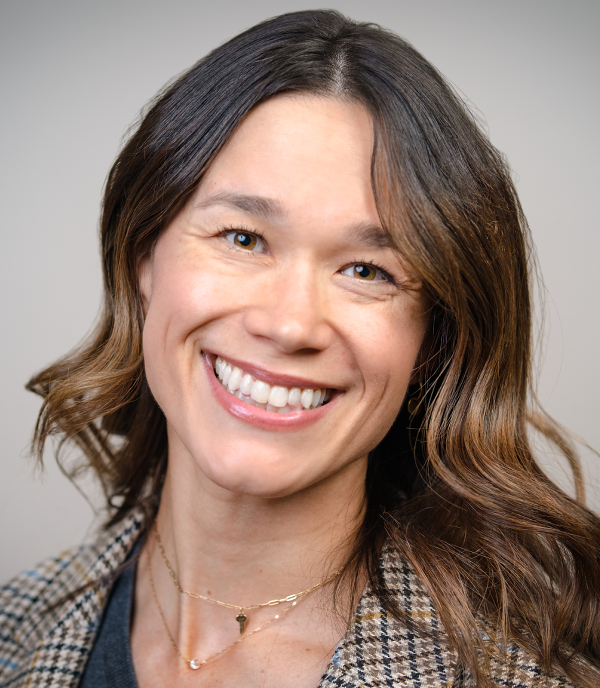
Assistant Professor, Social Work
Jane Addams College of Social Work
Bio: Sara Beeler is an addictions researcher looking at the intersection of substance use and criminal legal involvement; specifically, she is looking at facilitators of help-seeking behavior to understand the different paths to health and wellness among individuals who use drugs/alcohol. She is an assistant professor at the Jane Addams College of Social Work and a faculty fellow at the Honors College. Before joining academia, Beeler worked as a grants and quality manager and clinician at a community-based behavioral health center for women and their children.
Presentation Title: Building Equitable and Responsive Systems of Care for Persons who use Drugs and Alcohol
Abstract: Over 60 million people reported using substances in the past year with almost 50 million meeting conditions for a substance use disorder. Only 1 in 4 people reported they received substance use treatment in the past year; not perceiving a need for or wanting services is the most reported reason for not accessing substance use treatment. Not perceiving a need or wanting treatment can be the result of a variety of reasons, but recent research highlights this can be attributed to prior experiences with stigma from health care providers (particularly among persons who inject drugs) and low health literacy levels. This gap in care for drug and alcohol use is widening health disparities and the social consequences associated with use including employment, housing and criminal legal involvement. The risks continue accumulate while drug overdose continues to be the most preventable leading cause of death for years in the United States.
The continuum of care for substance use includes a spectrum of services from harm-reduction services, including services designed to decrease the harm or risk associated with ongoing drug and alcohol use, to more formal treatment options, including intensive inpatient and outpatient services. Substance use disorders are also highly comorbid with other chronic health disorders and persistent mental health issues. As a result, the gold standard of care is offering integrated and comprehensive treatment so that a person may access or be connected to most of their service needs in one place; however, this is often not the case due to lack of funding and resources. Additionally, the systems of care are often complex and difficult to navigate and can create a “burden of care” particularly for individuals releasing from correctional systems.
This presentation reviews ongoing research projects that are seeking to understand perceptions of care for persons who use drugs among patients seeking care at a mobile health van and ways to improve collaborative and interdisciplinary care. Suggestions for next steps in research and practice will be highlighted.
Watch the recording!
Tanvi Bhatt, PhD, MS, PT Heading link
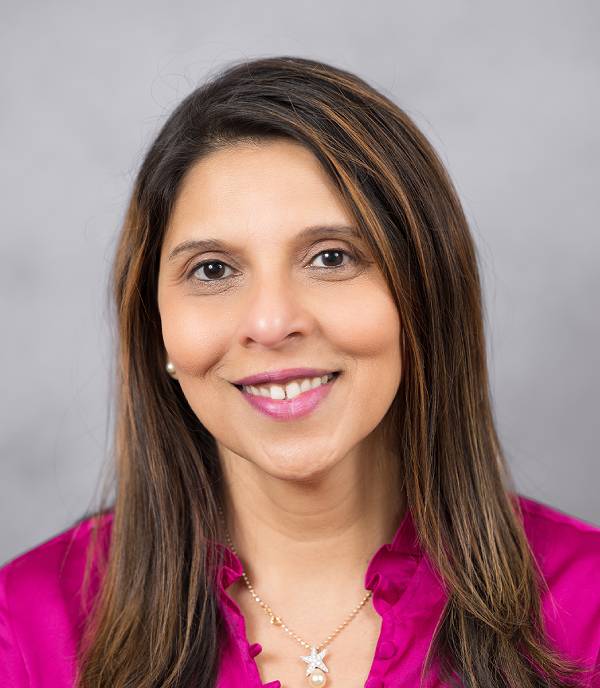
Professor, Physical Therapy
College of Applied Health Sciences
Bio: Tanvi Bhatt is a professor and director of the Cognitive, Motor, and Balance Rehabilitation Laboratory in the department of physical therapy and co-director of the Midwest Roybal Center on Health Promotion and Translation and the newly founded Resource Center on Minority Aging —CHECA. She has over 25 years of experience in the field of balance and gait rehabilitation for geriatric and neurological populations. Her research focuses on examining interactions between the cognitive, balance and locomotor systems and how they impact functional mobility and fall risk. Specifically, Bhatt’s research involves investigating the neuromechanical basis of balance recovery from external perturbations such as slips and trips and subsequently designing intervention paradigms for reducing fall risk in healthy and pathological populations including alternative cognitive and motor therapies such as exergaming and dance therapy. Bhatt has over 100 peer-reviewed publications and serves as the principal investigator on several NIH grants, bringing more than $10 million in grant funding to UIC. She is known nationally and internationally for her work in fall prevention.
Presentation Title: Are Falls Inevitable or Preventable?
Abstract: One in 3 adults over the age of 65 experiences a fall annually. That’s a staggering statistic, isn’t it? But what’s event more concerning is that falls are the leading cause of hip fractures, which can severely limit your mobility for years. There are many exercise-based programs designed to reduce fall risk; however, we still have thousands of people slipping and tripping every day. My team and I at the cognitive motor and balance rehabilitation laboratory, or cogmobal lab as we call it for short, are committed to teaching seniors how to prevent falls in daily living. In this talk I highlight the cutting-edge work being done in our lab regarding fall-risk prediction, assessment and prevention. The overall goal of our line of research is to maintain or enhance functional independence, community mobility and participation in our aging population living with or without a physical or cognitive disability.
Watch the recording!
Kathryn Bocanegra, PhD, LCSW Heading link
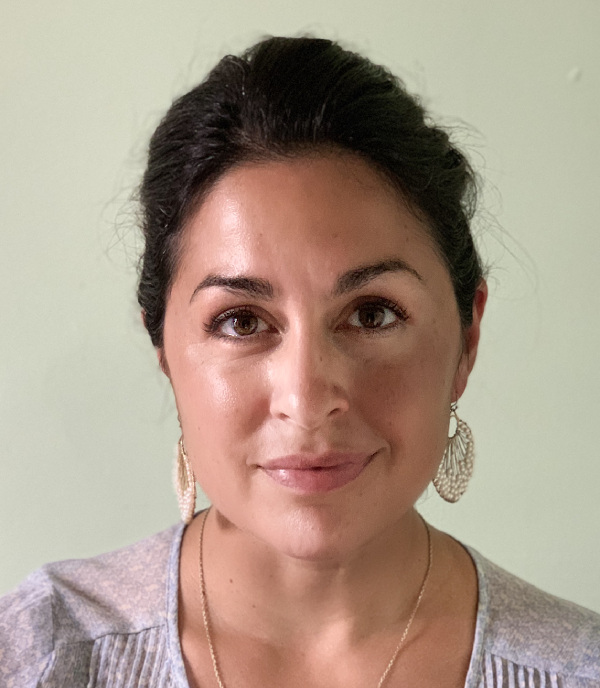
Assistant Professor, Social Work
Jane Addams College of Social Work
Bio: Kathryn Bocanegra is an assistant professor in the Jane Addams College of Social Work at the University of Illinois Chicago. She is a licensed clinical social worker and serves as senior advisor to Illinois Attorney General Kwame Raoul on crime victim and violence prevention issues. Bocanegra has over 18 years of community-based mental health and community violence intervention work, specializing in working with survivors of violent crime. Bocanegra has been facilitating support groups for families of homicide victims since 2010. She has published book chapters and articles examining the intersection of the criminal legal system with urban neighborhoods. Chicago Mayor Brandon Johnson appointed Bocanegra as co-chair of his Public Safety Transition Committee, and she authored the section on victim services for the People’s Plan for Community Safety. Her current research projects focus on street intervention and trauma exposure, survivor-centered analyses of homicide investigation processes, the experiences of criminalized survivors and developing responsive reentry programs for individuals who have survived long-term institutionalization.
Presentation Title: Responding to Group-Based Violence through an Addictions Framework
Abstract: In 2021, firearms were involved in 81% of all homicides in the U.S (CDC, 2022). The vast majority of these homicides are attributed to interpersonal and group-based conflict, which typically involve disputes between friends, intimate partners or community members that can escalate into conflict between groups, gangs or street cliques. Responses to firearm violence, national homicide victimization rates and group-based violence vary, with an emphasis on punishment and accountability. There are stricter enforcement measures for group-based violence, sentencing enhancements if one is affiliated with a gang, and lingering three-strikes and habitual offender laws that falsely promise enhanced public safety if there are swifter, more punitive responses to group-based firearm violence. The presentation provides an addictions framework as an alternative analytic and response filter through which group-based firearm violence can be analyzed and effectively disrupted. Group-based, or gang violence, is discussed as an addictive behavior that is reinforced through psychological, social and contextual factors that are largely not considered in existing prevention and intervention strategies. Harm reduction is applied as a strategy to address trauma, experiences of structural violence and system racism. The presentation concludes with a call to imagine responses to group-based violence through a harm reduction framework that holistically repairs the harm to individuals and communities disproportionately impacted by firearm violence.
Watch the recording!
Tessa Bonney, PhD Heading link

Assistant Professor, Environmental and Occupational Health Sciences
School of Public Health
Bio: Tessa Bonney is an assistant professor in the Division of Environmental and Occupational Health Sciences in the UIC School of Public Health, where she serves as co-director of the occupational safety training program in the Great Lakes Center for Occupational Health and Safety. Bonney’s research focuses primarily on understanding the determinants of and adverse health outcomes related to precarious and low-quality employment. In addition to her occupational health-focused research and teaching, Bonney leads the School of Public Health’s SPH Success program, which she designed to provide undergraduate and graduate public health students with asynchronous academic support resources aligned with their coursework.
Presentation Title: Starting Strong: The School of Public Health’s SPH Success Program
Abstract: The transition to graduate school can be challenging for all students, whether they are transitioning directly from an undergraduate program or returning to school years after their bachelor’s degree. Students in graduate programs in the School of Public Health come to the school from a wide variety of academic backgrounds, from disciplines in the humanities to those in the sciences. Regardless of academic background, graduate students in the School of Public Health are all expected to complete a set of core courses, each of which has a set of prerequisite skills and knowledge that instructors will build upon as students progress through their first few semesters. The SPH Success program was designed to support students’ transition into graduate coursework at the School of Public Health, regardless of prior academic background or time between students’ previous degree and their matriculation into graduate school. SPH Success provides students with diagnostic resources, including an assessment of quantitative readiness for coursework in biostatistics and epidemiology; quantitative review resources, including modules with videos, readings and practice problems to help students refresh their quantitative skills; writing resources, including guides to citation and referencing, English grammar supports, and tutorials for scientific writing; and trainings that are aligned with public health coursework, including an academic integrity training and links to external trainings for human subjects protections in research. This SparkTalk will describe the SPH Success program and evaluations of its utility for facilitating graduate student success in the School of Public Health.
Watch the recording!
Ekrem Emrah Er, PhD Heading link
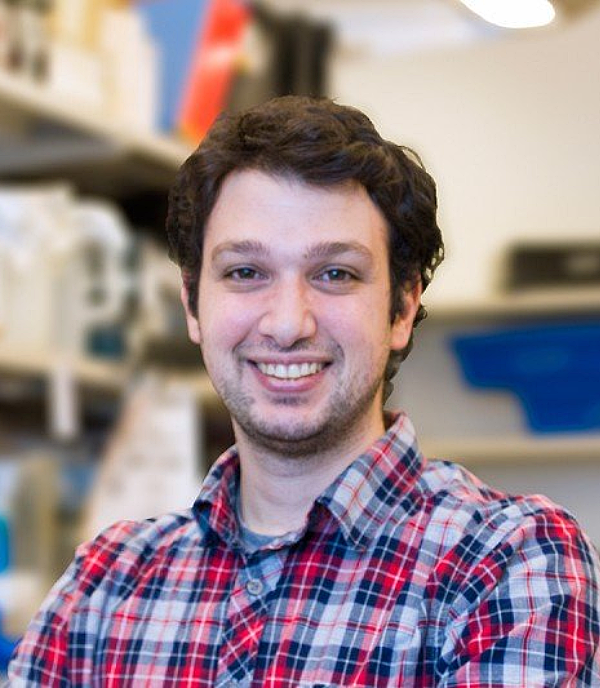
Assistant Professor
Department of Physiology and Biophysics
College of Medicine
Bio: Ekrem Emrah Er, PhD, is from Türkiye. He received his BSc from Bilkent University, Ankara, and his PhD from Harvard University, Cambridge. Emrah completed his postdoctoral training at Memorial Sloan Kettering Cancer Center, New York, and joined UIC as an assistant professor in October 2019. His lab investigates how biophysical characteristics of cancer cells impact their interaction with the immune system through the process of mechanosurveillance. His works have been highlighted by Nature Reviews in Cancer, Nature Reviews in Immunology, Nature Cell Biology, Cancer Discovery and F1000. Emrah was named a NextGen Star at the Annual American Association for Cancer Research Conference in 2022. His research is supported by an NCI MERIT Award, the Concern Foundation Conquer Cancer Award, Michael Reese Foundation Pioneers in Research Award, and the University of Illinois Cancer Center Hope Leaders Award. Emrah serves as a co-leader of the Tumor Microenvironment Working Group and the Community Engagement and Outreach Liaison for Cancer Biology at the University of Illinois Cancer Center.
Presentation Title: Mechanosurveillance in Cancer Metastasis
Abstract: Metastasis is the process by which cancer cells leave their primary organ of origin to invade and colonize distant vital organs and this is the leading cause of cancer related deaths. Certain members of our immune system, called cytotoxic lymphocytes, are particularly effective at destroying disseminated cancer cells and at protecting vital organs from overt metastatic colonization. However, cytotoxic lymphocytes eventually exhaust and lose their activity, which allows the outgrowth of lethal metastases. Therefore, it is critical to identify mechanisms that activate cytotoxic lymphocytes. In our recent paradigm shifting work, we identified a surprising biophysical characteristic of disseminated cancer cells that activated cytotoxic lymphocytes: we found that elevated physical stiffness of cancer cells mechanically activated the adjoining cytotoxic lymphocytes through mechano-chemical signal transduction. Based on the mechanical nature of this mode of immune surveillance, we termed it “mechanosurveillance”, and demonstrated that it cooperates with the FDA approved immune checkpoint blockade therapies in pre-clinical settings. In our current work, we search for molecular mechanisms that increase cancer cell stiffness. Specifically, we utilize atomic force microscopy for physical characterization of cancer cells, genetic and pharmacological perturbations in ion channel proteins, cytoskeletal proteins and immune signaling molecules, ex vivo models of cancer cell-cytotoxic lymphocyte interactions, in vivo mouse models of metastatic colonization, bioinformatics analyses of patient data and histological interrogation of stiffness and metastasis markers in clinical samples. Our ultimate goal is to use this inter-disciplinary approach to identify actionable targets and design clinically feasible therapies to improve mechanosurveillance to fight against metastatic cancer.
Watch the recording!
John Finan, PhD Heading link
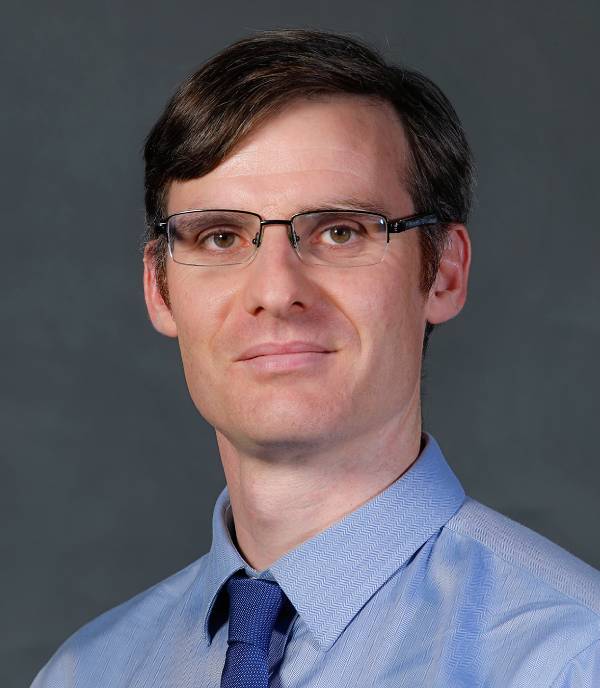
Assistant Professor, Mechanical and Industrial Engineering
College of Engineering
Bio: John Finan is an assistant professor in the mechanical and industrial engineering department at the University of Illinois Chicago. He studies the biomechanics of the human brain, particularly as it relates to understanding and treating traumatic brain injuries and their long-term consequences. He uses human brain cells and organoids (self-organizing aggregates of thousands of brain cells) derived from stem cells in his research because they allow him to answer questions about how human brains differ from animal brains, and why one human’s brain differs from another’s. He received his PhD from Duke University, where he published on improving motorcycle helmets and the biomechanics of cartilage. He also held a post-doctoral appointment at Columbia University in New York, where he studied the biomechanics of rat, pig and human brains and worked on a novel approach to treating brain swelling after trauma. His work has been funded by the National Institutes of Health and the National Science Foundation.
Presentation Title: Traumatic Brain Injury in a Dish
Abstract: Traumatic brain injuries affect different people in different ways. Some people are left devastated while others recover remarkably well. Our goal is to understand why some patients have good outcomes so we can use that information to help the patients with bad outcomes. The first step is to recreate the brain injury process in our lab. We start by making human brain cells from human stem cells, which are in turn made from skin cells or blood cells or other cells that are easy to obtain. We grow these human brain cells in little balls about 1 millimeter in diameter called organoids. Then, we build machines to violently deform these balls of cells the same way cells deform in a patient’s brain during an impact. The cells retain the genome of the patient from whom they were made. So, if the patient is susceptible — or resilient — to trauma, the cells will be too. Also, individual genes can be removed or switched into a mutant form so we can introduce risk genes for neurodegeneration and see if trauma amplifies their toxic effects. We can also use this system to ask other important questions. For example, concussion sometimes makes people more vulnerable to future head impacts. We can traumatize organoids repeatedly to figure out what exactly drives this vulnerability. We can test new drugs to see if they mitigate the consequences of trauma in human brain cells (there are currently no drugs certified by the Food and Drug Administration to be safe and effective for the treatment of traumatic brain injury). In summary, by engineering new machines and integrating new brain cell culture techniques, we can learn about this terrible disease in many new and powerful ways.
Watch the recording!
Brenikki Floyd, PhD, MPH Heading link

Associate Dean for Community Engagement, School of Public Health
Professor, Community Health Sciences
Bio: Brenikki Floyd is the associate dean for community engagement and director of the Collaboratory for Health Justice in the School of Public Health. She is also a clinical assistant professor in the Division of Community Health Sciences and an affiliate faculty member in the Center for Dissemination and Implementation Science in the Department of Medicine. She has expertise and years of experience in health marketing and health communication interventions, community-based participatory research, implementation and dissemination science, and program planning and evaluation, using multiple methodologies. Her current research focuses on the application of health communication strategies and health literacy in community-based and health systems settings to improve health outcomes among racial and sexual minority populations, particularly women, adolescents and young adults. She received both her MPH and PhD from the University of Kentucky, MA degree in communication from Morehead State University, and BA from Mississippi Valley State University.
Presentation Title: Collaboratory for Health Justice
Abstract: Officially launched Fall 2019 after a redesign of the Coordinating Center for Public Health Practice, the Collaboratory for Health Justice is dedicated to enhancing reciprocal engagement between the community and UIC faculty, students, and staff. Its mission is to support academic-community partnerships by facilitating the meaningful participation of academic and community collaborators, fostering representation and presence in academic and community settings, and providing training and technical assistance for integrating community engagement across research, teaching, and practice in the School of Public Health. The COVID-19 pandemic exposed the need to strengthen the local public health infrastructure and workforce by amplifying community-based organizations’ (CBOs) value within the public health system. With funding from the John D. and Catherine T. MacArthur Foundation, the Collaboratory developed innovative community-engaged initiatives to build reciprocal relationships with CBOs toward a more responsive local public health system. Three key initiatives include Community Course Alignment, which integrates CBOs’ needs into SPH course instruction resulting in a mutually beneficial teaching and learning experience for community partners, faculty, and students; the Health Justice Speaker Bureau initiative which compensates and supports staff from community partner organizations as guest experts and lecturers in UIC courses; and LEAPPS, a community of practice of liberatory educators. There are several notable community-engaged initiatives at SPH such as the Population Health Analytics, Metrics and Evaluation (PHAME) Center, which manages the Chicago Health Atlas – a publicly accessible database of neighborhood level health data designed to understand of the health of Chicago and identify health improvement opportunities.
Watch the recording!
Ruixuan Gao, PhD Heading link
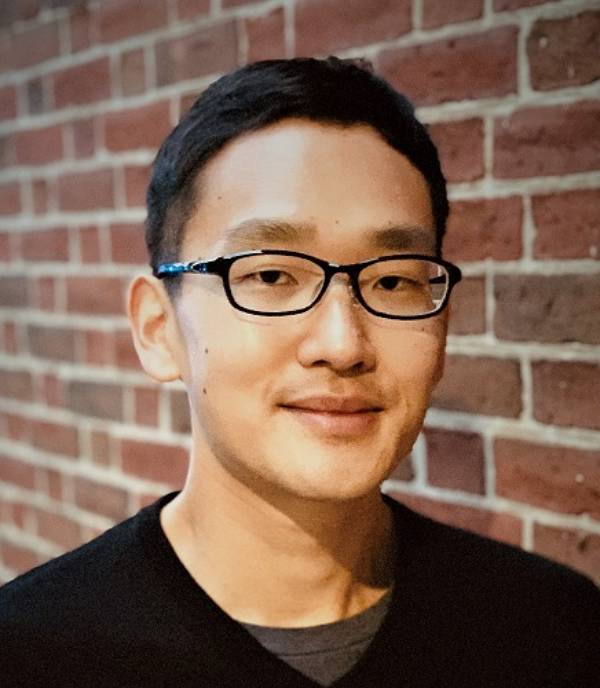
Assistant Professor, Chemistry and Biological Sciences
College of Liberal Arts and Sciences
Bio: Ruixuan Gao is an assistant professor of chemistry and biological sciences at the University of Illinois Chicago. His research interest lies at the interface of chemistry and biology, with a focus on elucidating the molecular nature of biological structures and processes central to life and human health. His research group designs small-molecule probes, macromolecular matrices and supramolecular assemblies to detect and quantify biomolecules in intact biological specimens, and develops microscopy and imaging methods to map and track various molecular entities at their natural spatiotemporal scale. His lab uses these tools to investigate the molecular bases of critical biological functions and dysfunctions, including synaptic transmission, neuronal connection, neurodegeneration and mental disorders. He received his PhD from Harvard University and completed his postdoctoral training at MIT and HHMI Janelia Research Campus.
Presentation Title: A Biochemical Approach Towards Unlocking the Molecular Complexity of Life
Abstract: Living organisms are composed of structures spanning orders of magnitude in size, and are assembled from tens of thousands of, if not more, distinct molecular entities. Understanding the function and dysfunction of such complex biological systems often requires investigation of their molecular composition and dynamics at high spatiotemporal resolution. Conventional analytical methods, however, suffer from the trade-off between spatial resolution, molecular specificity and speed, aside from many other factors. In this presentation, I will focus on our lab’s ongoing efforts to overcome these limitations. By taking advantage of chemical modification and transformation of biological specimens, we have demonstrated spatial mapping of native biomolecules, such as proteins, RNAs, and lipids, in healthy and pathological brain tissue at subcellular resolution. By combining this approach with high-throughput fluorescence microscopy techniques, we have characterized the morphology of dendritic spines, determined the location of synapses, and studied the radial and longitudinal profile of axons and myelinations across the entire stretch of a mouse cortical column. In addition, we have mapped dopaminergic neuron projections and close to 40 million presynaptic sites across a fruit fly brain.
Watch the recording!
Olga Garcia-Bedoya, MD, FACP on behalf of Martha L. Daviglus, MD, PhD Heading link

Olga Garcia-Bedoya, MD, FACP
Medical Director, Institute for Minority Health Research
Associate Professor of Medicine
Martha L. Daviglus, MD, PhD
Associate Vice Chancellor for Research
Director, Institute for Minority Health Research
Professor of Medicine
Bios: Dr. Garcia-Bedoya practices as a bilingual and bicultural Internist in the Department of Medicine at UI Health. She specializes in adult medicine, particularly chronic illnesses such as obesity, diabetes, and hypertension, as well as women’s preventive health. She also serves as the medical director for the UIC Institute for Minority Health Research, where she oversees standardized clinical examinations and biospecimen collection for large-scale epidemiological research projects. She is the principal investigator and co-investigator on NIH sponsored longitudinal cohort ancillary studies such as Peripheral Artery Disease Study of Study of Latinos (SOL) and the Nonalcoholic Fatty Liver Disease, Cardiovascular Disease, and their Associations in Hispanics/Latinos. Dr. Garcia believes in patient-centered care and personalized medicine, ensuring that each patient receives the best possible treatment.
Dr. Maria Daviglus, a bilingual and bicultural physician/epidemiologist of Hispanic origin, is a professor of medicine, director of the Institute for Minority Health Research and associate vice chancellor for research at the University of Illinois Chicago. Her research focuses on the epidemiology of cardiovascular diseases and related chronic conditions, minority health and health disparities.
She is the principal investigator/multiple-PI on many NIH-sponsored longitudinal cohort studies including: the Chicago Field Center for the Hispanic Community Health Stud/Study of Latinos, the largest, most in-depth longitudinal cohort study of this fast-growing population, and the Illinois Precision Medicine Consortium, an enrollment site for the national All of Us Research Program.
Presentation Title: Population Health Research Initiatives at the UIC Institute for Minority Health Research
Abstract: The University of Illinois Chicago Institute for Minority Health Research is an interdisciplinary unit established in June 2012, to conduct, facilitate and consolidate multidisciplinary research and training activities on minority health and health disparities. The institute collaborates with researchers across the UIC health sciences colleges, with the University of Illinois campuses in Urbana-Champaign, Rockford and Peoria, and with other institutions nationwide and globally. Currently, it houses several large-scale research programs, including the Chicago Field Center for the Hispanic Community Health Stud/Study of Latinos, the UIC enrollment site for the national All of Us Research Program, and the Center for Health Equity Research focused on structural violence, among others.
Watch the recording!
Shannon Halloway, PhD, RN, FAAN, FAHA Heading link

Associate Professor and Heung Soo & Mi Ja Kim Endowed Faculty Scholar, Biobehavioral Nursing Science
College of Nursing
Bio: Shannon Halloway is an associate professor and the Heung Soo & Mi Ja Kim Endowed Faculty Scholar at the University of Illinois College of Nursing in the biobehavioral nursing science department. Halloway’s scholarship focuses on promoting the benefits of lifestyle physical activity for cardiovascular and brain health through research and policy. She is nationally recognized for her expertise and has led numerous NIH and other interdisciplinary-funded studies centered on realistic and tailored health behavior strategies to prevent cognitive impairment in older adults who experience disparities in risk and treatment. Halloway received her BSN from Pacific Lutheran University, and her PhD and postdoctoral fellowship training from the Rush University College of Nursing. She has been named a fellow of the American Academy of Nurses and a fellow of the American Heart Association.
Presentation Title: Preventing Cognitive Impairment in At-risk Older Adults: Developing and Testing Lifestyle Interventions
Abstract: Cognitive impairment (CI) and cardiovascular disease (CVD) disproportionately affect women compared with men, and CVD increases risk of CI. Physical activity and cognitive training can improve cognition in older adults and may have additive or synergistic effects. However, no combined intervention has targeted women with CVD or utilized a sustainable lifestyle approach. We developed, pilot tested and now are testing our combined intervention, MindMoves, in our ongoing randomized controlled trial. The purpose of the trial is to evaluate efficacy of MindMoves, a 24-week multimodal physical activity and cognitive training intervention, on cognition and serum biomarkers in older women with CVD. Three serum biomarkers (brain-derived neurotrophic factor [BDNF], vascular endothelial growth factor [VEGF], and insulin-like growth factor 1 [IGF-1]) were selected as a priori hypothesized indicators of the effects of physical activity and/or cognitive training on cognition.
Methods: The study design is a randomized controlled trial with a 2×2 factorial design to determine independent and combined efficacies of Mind (tablet-based cognitive training) and Move (lifestyle physical activity with goal-setting and group meetings) on change in cognition (primary outcome) and serum biomarkers (secondary outcomes). We successfully recruited 253 women aged ≥65 years with CVD and without CI from cardiology clinics, and have met all timeline and retention goals. Women were randomized to one of four conditions: (1) Mind, (2) Move, (3) MindMoves, or (4) usual care. Data was obtained from participants at baseline, 24, 48, and 72 weeks.
Discussion: This study will test efficacy of a lifestyle-focused intervention to prevent or delay cognitive impairment in older women with CVD and may identify relevant serum biomarkers that could be used as early indicators of intervention response.
Watch the recording!
Russell Hemley, PhD Heading link

LAS Distinguished Chair in the Natural Sciences, Physics
College of Liberal Arts and Sciences
Bio: Russell J. Hemley holds the position of LAS Distinguished Chair in the Natural Sciences at the University of Illinois Chicago. His research explores the behavior of matter and materials in extreme environments, notably high pressures and temperatures, with applications to fundamental physics and chemistry, materials science and technology, and earth and planetary science. He received his bachelor’s degree from Wesleyan University, and his master’s degree and PhD from Harvard University, all in chemistry. He is a member of the National Academy of Sciences, a fellow of the American Academy of Arts and Sciences, a corresponding fellow of the Royal Society of Edinburgh, an Honoris Causa Professor of the Russian Academy of Sciences, and a recipient of the Balzan Prize and Percy Bridgman Award, among other honors. Hemley has directed national materials science centers funded by the DOE, DoD and NSF, and currently directs three such centers at UIC, including the Chicago/DOE Alliance Center. He has co-authored approximately 695 scientific publications. His recent research has focused on the design, discovery and synthesis of novel energy materials, including materials that superconduct near room temperature.
Presentation Title: Revolutionary Materials from Extreme Conditions
Abstract: Extreme conditions, and in particular high pressures and temperatures, can produce profound effects on condensed matter, leading to the creation of new, potentially useful materials. A growing number of novel materials and phenomena are being documented over a broad range of conditions from kilobar to megabar pressures that can now be produced in the laboratory with diamond-anvil based high-pressure devices. In many cases guided by first-principles theory, recent results include unusual transitions between insulators, semiconductors and metals; new “topological” materials with exotic bonding and electronic and magnetic properties; novel high-strength, “superhard” materials; and materials that can contain a vast amount of stored energy. Studies of hydrogen-rich systems under pressure have led to our discovery of new classes of materials that exhibit superconductivity — the ability to transport electricity without resistance — in the vicinity of room temperature. Our earlier discovery of these high-temperature superconductors at megabar pressures has led to the recent observation of a new class of hydrides that exhibit this remarkable behavior near ambient pressures and temperature. UIC graduate students Alexander Mark and Adam Denchfield are leading the experimental and theoretical aspects of this work, respectively, on these intriguing materials.
Watch the recording!
Decoteau J. Irby, PhD Heading link
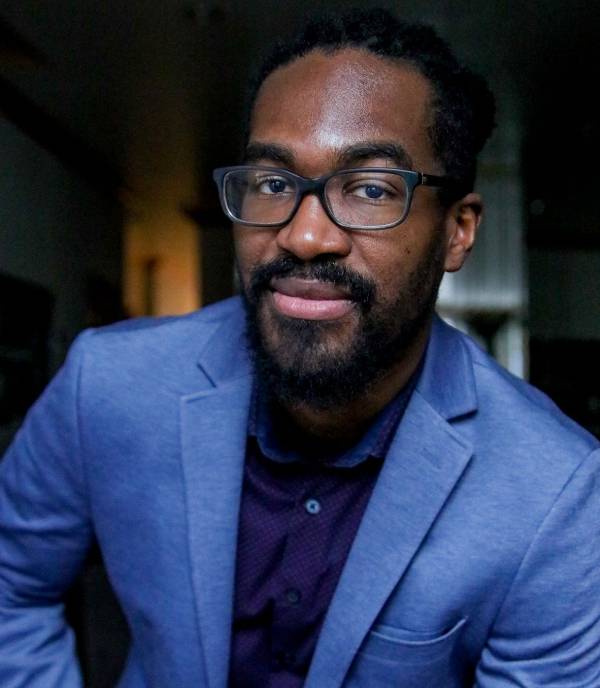
Associate Professor, Educational Policy Studies
College of Education
Bio: Decoteau J. Irby is an associate professor of educational policy studies at the University of Illinois Chicago. His research explores how equity-focused school leadership improves Black children and youth’s academic achievement and socioemotional well-being across a range of K-12 educational settings. Specifically, he examines how adults make sense of and use their personal and collective influence and resources to transform educational organizations to benefit students of color.
He is the author of numerous peer-reviewed articles and several books, including “Stuck Improving: Racial Equity and School Leadership” (2021, Harvard Education Press), “Magical Black Tears: A Protest Story” (2021, Derute Consulting Cooperative), “Black Participatory Research” (2016, Springer/Palgrave McMillan), and “Dignity-affirming Education: Cultivating the Somebodiness of Students and Educators” (2022, Teachers College Press). Finally, he is a highly sought-after speaker, leadership coach and organizational improvement consultant.
Presentation Title: Five Organizational Conditions to Advance Racial Equity
Abstract: Why do so many organizations espouse a commitment to racial equity yet continually fail to actualize their priorities to support and achieve better outcomes for Black, Brown and other racially marginalized people? What if the stubbornly persistent lack of progress is not because of low effort but low capacity to improve?
Drawing insights from his book,” Stuck Improving: Racial Equity and School Leadership” (2021), Irby’s SparkTalk provides an overview into the dynamic process of working to achieve racial equity in organizations. He argues that to enact racial equity improvements leaders must cultivate their organization’s capacity for racial equity improvement by growing resources that advance a broad array of racial equity priorities.
He introduces five such interlocking resources, which include:
- Black and Brown people’s influential presence.
- Curated white racial discomfort.
- Courageously confrontational culture.
- Collective awareness of racial emotions and beliefs.
- Race-conscious inquiry cycles (leadership).
At the end of the talk, participants will understand what it means to have the capacity for racial equity improvement, know five essential resources for advancing racial equity improvement in organizations, and have general sense of what leaders must do to cultivate and leverage these resources for the purposes of improvement.
Watch the recording!
Jennie Jarrett, PharmD, MMedEd, BCACP, FCCP and Abigail Elmes, PharmD, MHPE, BCPS Heading link
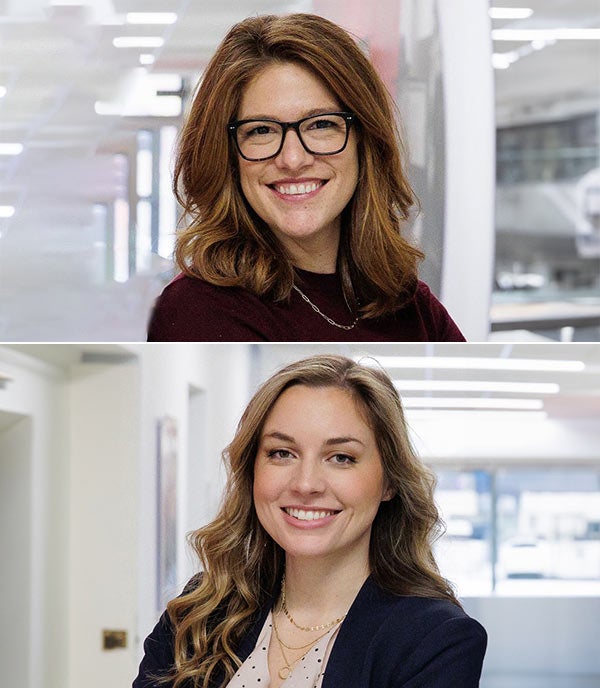
Jennie Jarrett, PharmD, MMedEd, BCACP, FCCP
Research Assistant Professor, Pharmacy Practice
College of Pharmacy
Abigail Elmes, PharmD, MHPE, BCPS
Visiting Clinical Assistant Professor, Pharmacy Practice
College of Pharmacy
Bios: Jennie Jarrett is a research assistant professor in the department of pharmacy practice at the UIC College of Pharmacy. She received her PharmD from the University of North Carolina at Chapel Hill and went on to complete two years of residency. After years as a family medicine inpatient clinician, she completed her master’s degree in medical education from the University of Pittsburgh and transitioned to her role at UIC. Her current research work focuses on workforce development and implementation of interprofessional primary care teams to improve patient care for vulnerable, underserved populations with substance use disorders.
Abigail Elmes earned her Doctor of Pharmacy from the University of Pittsburgh, after which she completed an ambulatory care-focused pharmacy practice residency at Northeastern University in Boston. She completed an Academic/Family Medicine Fellowship at the UIC College of Pharmacy, during which she earned her Master of Health Professions Education. She currently serves as a clinical assistant professor and co-director of the Academic/Family Medicine Fellowship at the UIC College of Pharmacy. In her role as clinical pharmacist, principal investigator and mobile expansion lead for the Community Outreach Intervention Projects Mobile Medical Unit, she is working to implement additional mobile medical units to expand service reach to targeted neighborhoods and patient populations in the Chicagoland area.
Presentation Title: Meeting Patients Where They Are: An Innovative Mobile Harm Reduction and Medication-Assisted Recovery Program To Mitigate The Opioid Overdose Epidemic
Abstract: Started in 2021, the Community Outreach Intervention Projects Mobile Unit is a collaboration between a harm reduction syringe exchange program, interprofessional primary care team and opioid treatment program that integrates clinical pharmacists to provide medication-assisted recovery via low barrier buprenorphine. This program saves lives ravaged by the opioid overdose epidemic by innovatively bringing life-saving medications directly to the patients most at need in the affected neighborhoods in Chicago.
Watch the recording!
Salman Khetani, PhD Heading link
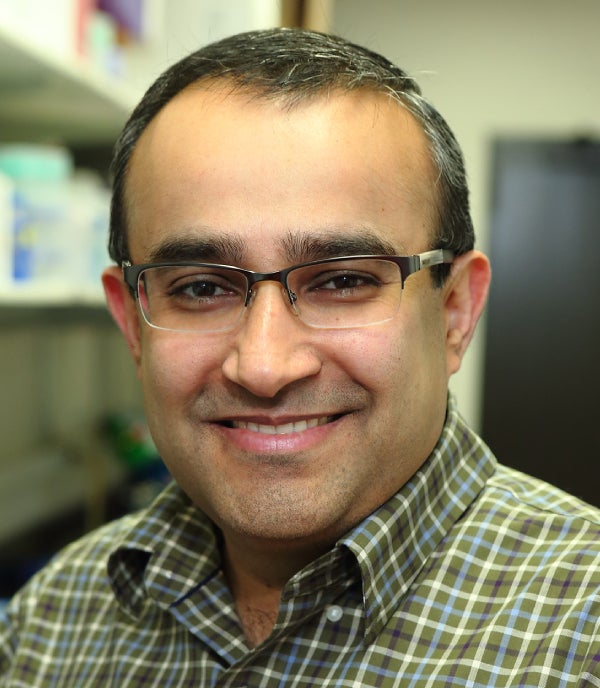
Professor, Biomedical Engineering
College of Engineering
Bio: Salman Khetani received his Bachelor of Science degrees, summa cum laude, in electrical engineering and biomedical engineering from Marquette University, and master’s and Doctor of Philosophy degrees in bioengineering from the University of California at San Diego. He was a Jacobs fellow and a National Science Foundation graduate fellow at UCSD. Khetani conducted his postdoctoral studies at the Massachusetts Institute of Technology. Khetani subsequently co-founded Hepregen Corporation and led the research as director of research from 2008 to 2011 to bring to market bioengineered liver models for pharmaceutical drug development. Dr. Khetani then started his academic faculty career in the Department of Mechanical Engineering and School of Biomedical Engineering at Colorado State University and transitioned in 2015 to the University of Illinois Chicago, where he directs the Microfabricated Tissue Models laboratory. He is a recipient of the NSF CAREER award, several teaching, mentoring and research awards, and has raised more than $11 million in federal funding for his academic research since 2012.
Presentation Title: Engineering Tissues for Drug Development and Regenerative Medicine
Abstract: In vitro (in a dish) models of human tissues are increasingly valuable for screening the metabolism and toxicity of drug candidates; modeling features of diseases for the development of novel therapeutics; and as cell-based therapies for patients suffering from end-stage organ failure. However, primary cells isolated from their native in vivo (in a living organism) environment can quickly lose their tissue functions, while cells derived from a patient’s own stem cells often display immature (fetal-like) functions within traditional culture setups. Biomedical engineering technologies such as protein micropatterning, microfluidics, customizable biomaterial scaffolds, and 3D bioprinting can be used to precisely design the microenvironment around cells and mitigate the above issues. The microfabricated tissue models laboratory, directed by Khetani, develops and adapts such technologies to fabricate human tissue surrogates using both primary and patient induced pluripotent stem cell-derived cells. Platforms of increasing biological complexity and throughput are used for modeling dysfunctions of diseases such as alcoholic and metabolic fatty liver disease, hepatitis B viral infection, and atrial fibrillation, as well as for use as cell-based therapies (i.e., implantable tissues). The laboratory also develops key criteria for validating tissue surrogates and reproducible fabrication methods for routine use by end-users. The COVID-19 pandemic has highlighted the importance of understanding disease biology and developing effective therapeutics. Thus, it is most likely that engineered human tissue surrogates will continue to see unprecedented advances in the next few years, providing researchers and pharmaceutical companies with a deeper understanding of human disease mechanisms and more rapid and effective testing of therapies.
Watch the recording!
Miiri Kotche, PhD Heading link
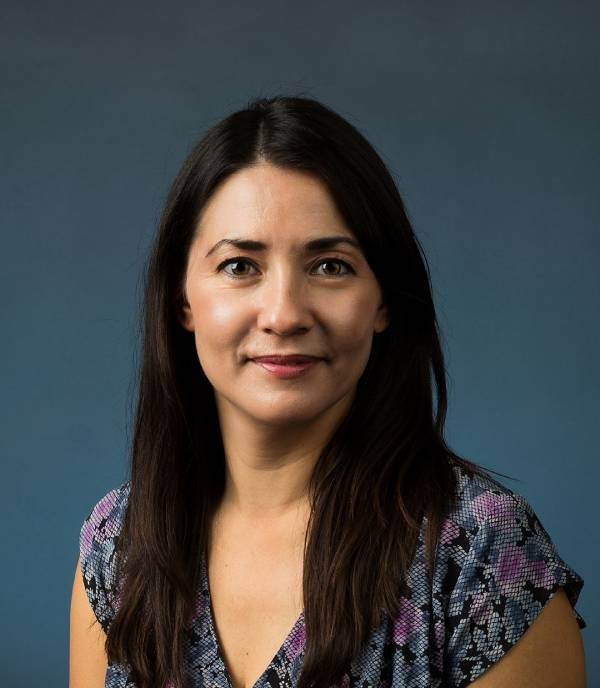
Richard and Loan Hill Clinical Professor, Biomedical Engineering
Associate Dean for Undergraduate Affairs, College of Engineering
Bio: Miiri Kotche is the Richard and Loan Hill Clinical Professor in the biomedical engineering department and associate dean for undergraduate affairs in the College of Engineering. Kotche’s efforts focus on the scholarship of engineering education and providing real-world experiences for students in the classroom, through hands-on project work, interdisciplinary programming and summer immersion. Her industry experience in product development, manufacturing and operations informs her work as an educator, and the privilege of educating the next generation of engineers and physicians is a responsibility Kotche does not take lightly. She has been recognized as an AIMBE Fellow, U.S. Fulbright Scholar, a “Notable Woman in STEM” by Crain’s Chicago Business, Master Teaching Scholar, College of Medicine Rising Star, and the recipient of the highest university teaching distinction, the Award for Excellence in Teaching as well as the College of Engineering Harold Simon Excellence in Teaching Award. Kotche is also the director of the Innovation Medicine program, a co-curricular program for medical students interested in the intersection of technology development, innovation and health care delivery.
Presentation Title: Creativity and Interdisciplinarity
Abstract: Biomedical engineering encompasses a wide spectrum of domains as disparate as the development of medical devices, engineering artificial tissues and organs, medical imaging to the big data of bioinformatics. What the discipline shares in common is the application of engineering principles to prevent, diagnose and treat disease and improve health care delivery. As technology advances, how do we prepare young biomedical engineers for a rapidly changing health care landscape? One area that deserves more emphasis is the focus on creativity and interdisciplinarity to address the complex global challenges society is currently confronting. Ten years ago, I launched the Clinical Immersion Program, placing small teams of engineering and medical students in clinical departments with the aim of identifying unmet clinical needs. Over the course of the summer, students gain experience in ethnographic research, interviewing, observing pain points and workarounds, and learn methodology to craft succinct problem statements. From the problems the teams themselves identify, the engineers work on design solutions for the following two semesters in their capstone design course, with the medical students providing ongoing clinical input. Unstructured problems with multiple potential solutions, possessing both technical and non-technical constraints, provide students an opportunity to become more comfortable with the uncertainty present in real-world engineering problems. Engineering and medical students learn the how each discipline approaches problems and is critical in a successful user-centered design process. Their solutions are more innovative and robust, and students are more invested in outcomes that have commercial potential.
A second area of effort focuses on increasing the pipeline of students who study biomedical engineering. In partnership with collaborator Jennifer Olson in the College of Education, we run a summer research experience for Chicago Public High School teachers. Teachers spend four days each week in an engineering research lab, and one day together in a curriculum workshop, where we support a community of practice for each teacher’s development of a new, standards-aligned curriculum based on their research experience. We draw science teachers from across the district from selective enrollment, magnet and neighborhood high schools, intentionally selecting for geographic and socio-economic diversity of the students they serve. Teachers know their students best, and we encourage the creative and often unexpected approaches they choose to introduce biomedical engineering into their courses. The success of this program could not be accomplished without strong cross-college collaboration between engineering and education. Both programs rely on strong interdisciplinary partnerships for optimal learner experiences to generate impactful, creative solutions.
Watch the recording!
Orly Lazarov, PhD Heading link
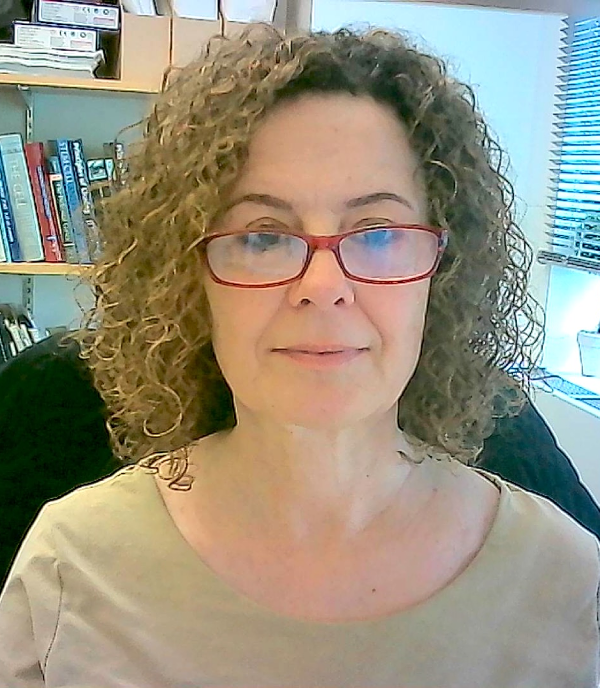
Professor, Anatomy and Cell Biology
College of Medicine
Bio: Dr. Orly Lazarov is a professor of neuroscience in the department of anatomy and cell biology at the University of Illinois Chicago, whose research focuses on the examination of molecular and cellular mechanisms of cognitive dysfunction in human tissue of individuals exhibiting mild cognitive impairments and Alzheimer’s disease and in mouse models of familial Alzheimer’s disease. Her research focuses on the role of neurogenesis in hippocampal plasticity in aging- and Alzheimer’s disease-linked cognitive deterioration. Lazarov is a pioneer in the field of neurogenesis in Alzheimer’s disease. She was one of the first to show that hippocampal neurogenesis is defective in familial Alzheimer’s disease mice and may contribute to cognitive deficits characterizing the disease. In addition, she was one of the first to show that hippocampal neurogenesis persists throughout life in the human brain, albeit compromised in mild cognitive impairments and Alzheimer’s disease patients. In addition, studies at her lab examine the role of neural stem cells in cognitive failure in comorbidities, such as stroke or Type 2 diabetes, as well as the role of endothelial and vascular factors that accelerate or contribute to the development of Alzheimer’s disease. Lazarov is the Director of the Alzheimer’s Disease and Related Dementia Training Program at UIC.
Presentation Title: Molecular and Cellular Mechanisms of Cognitive Decline and Alzheimer’s Disease
Abstract: Alzheimer’s disease is characterized by memory loss and cognitive deterioration. The hallmarks of the disease are amyloid plaques and neurofibrillary tangles. Neurons in the hippocampal formation exhibit vulnerability. Particularly, neurons in layer II of the entorhinal cortex and the CA1 region of the hippocampus. However, the mechanism underlying memory deficits is not known. Our research examines several paths that may play a role in disease mechanism. First, we examine the role of new neurons that are added to the hippocampus throughout life. These new neurons exhibit high level of plasticity and play a major role in hippocampus-dependent learning and memory that is greatly affected in Alzheimer’s disease. We examine the role of new neurons in learning and memory and how their dysfunction in Alzheimer’s disease plays a role in memory loss in mouse models and human postmortem samples. In addition, we examine vascular factors that contribute to the development of late onset sporadic Alzheimer’s disease. We examine how dysfunction of endothelial cells in comorbidities, such as Type 2 diabetes and obesity, lead to cognitive deterioration and Alzheimer’s disease. Lastly, we examine the physiological role of genes that cause Alzheimer’s disease, such as APP, and risk factors discovered by genome-wide-association studies, such as PICALM and the mechanism by which mutations or polymorphism causes Alzheimer’s disease.
Watch the recording!
Moontae Lee, PhD, MS Heading link

Assistant Professor, Information and Decision Sciences
College of Business Administration
Bio: Moontae Lee is an assistant professor of Information and Decision Sciences at the University of Illinois Chicago. His journey in researching Large Language Models (LLMs) began in 2019, following his invitation to Microsoft Research (MSR) as a visiting scholar. He continues to collaborate with MSR’s Deep Learning Group in Redmond, studying semantic representations and question answering for textual data. He is currently developing LLMs for both natural and programming languages with LG AI Research. His research primarily address three key areas: 1) ensuring factuality for hallucination/disinformation and 2) enhancing creativity for Human-AI interactions/engagement, and 3) improving reasoning for mathematical/logical problems. Beyond developing computational models, Moontae also explores AI Safety and Ethics for better aligning with societal values as well as individual preferences.
Presentation Title: The Art of Generative AI
Abstract: Large Language Models (LLMs) are transforming Artificial Intelligence and its wider applications across various industries and societal aspects. Based on their capability to understand extensive contexts, the groundbreaking innovation lies in tackling multiple tasks by a single formalism: generating contextually coherent and creatively diverse subsequent outputs. This talk highlights my recent work on developing text and code LLMs delving into retrieval-augmented text generation and multilingual code completions. Furthermore, the presentation would outline my ongoing research trajectory on planning, reasoning, aligning, and prospective steps toward self-learning.
Watch the recording!
Paul Lewis, JD Heading link
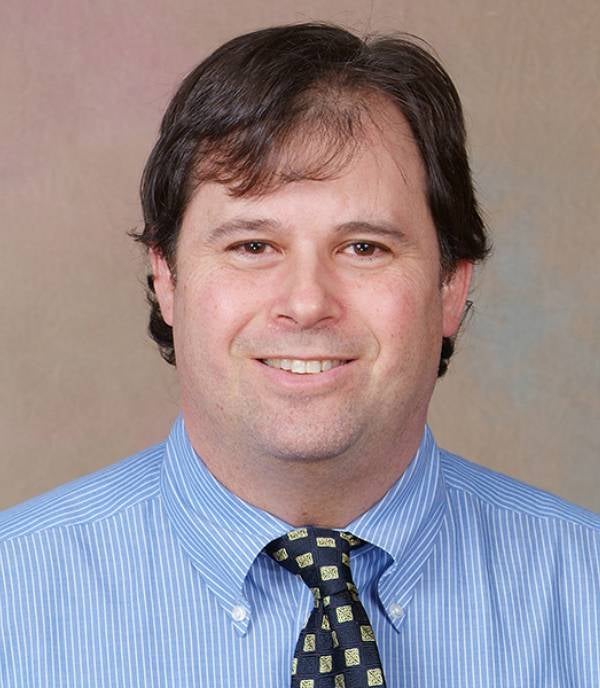
Professor of Law and Director, Center for International Law
School of Law
Bio: Paul Lewis is a professor of law and director of the Center for International Law at the University of Illinois Chicago School of Law.
He is a graduate of Northwestern University and Yale Law School, where he was a senior editor of the Yale Law Journal. His work focuses on insolvency, international commercial law and comparative law. His articles have appeared in Australia and journals in numerous European countries, and he has lectured globally. Lewis has also served as a visiting professor or scholar-in-residence at universities in numerous countries. He is the recipient of a Fulbright Senior Specialist award and is a member of the editorial board for the Insolvency Law Bulletin. His current research is part of a multinational comparative examination of evolving trends in insolvency litigation.
Presentation Title: Ethics and Economics in Judicial Decision Making: The Case of Insolvency Litigation Funding
Abstract: This paper examines the development of investment in high-revenue insolvency litigation. While this third-party funding of commercial litigation as an investment vehicle has been well-established in certain jurisdictions, its use is reaching new areas both globally and in terms of substantive areas of litigation. The use of investment in this context first took hold in Australia roughly a decade ago. It subsequently expanded to the United Kingdom and is now in the process of growing exponentially in a number of other parts of the world, including South Africa, Canada, much of Western Europe, and perhaps most notably, in the United States.
The paper examines investment in insolvency litigation with a comparative lens, looking at the distinct issues of such investment globally. While there is little doubt that its use provides benefits in allowing for increase assets available for creditor distribution by funding otherwise unavailable litigation, employing third party investment as a means of funding insolvency litigation also comes with a host of legal, ethical, and financial concerns.
The emphasis of the paper is on the process of judicial decision-making upon requests for authorization of third party funding in the insolvency context. In particular, the paper will examine the incentives of all of the parties, the potential significant externalization of costs, and the imbalance between the incentives of the decision-makers and those who are likely to suffer the costs in the event of adverse consequences. Judges have begun to routinely authorize such requests for funding. This paper contends that in doing so, judges routinely overlook serious economic concerns and are not fully considering the interests of all relevant parties.
Watch the recording!
Catherine Main, MEd Heading link
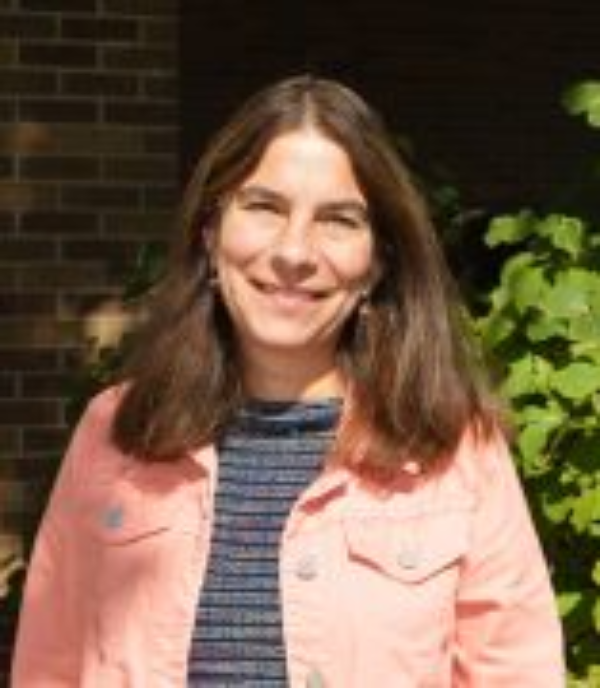
Senior Lecturer and Director of Early Childhood Education, Educational Psychology
College of Education
Bio: Catherine Main is a senior lecturer and director of Early Childhood Education in the College of Education. She has more than 30 years of work on behalf of young children and their families. She is a recipient of the 2019 UIC Award for Excellence in Teaching. Her work at the UIC College of Education has included innovative and responsive program development and coordination in early childhood education. Main designed and developed a Blended Early Childhood/Early Childhood Special Education program and an Early Childhood Alternative Licensure program. Both programs were the first of their kind approved by the State and both reflect a focused, much needed, response to specific demands for early childhood teachers in Chicago. Currently, she is the PI on a Department of Education Teacher Quality Partnership grant and leading the Illinois Early Childhood Apprenticeship Pilot project in partnership with the Illinois Department of Human Service. She regularly presents her work at national conferences and as an invited speaker at local conferences. She is the past president of the Illinois Association for Early Childhood Teacher Educators and a member of the board at Chicago Youth Centers.
Presentation Title: Transforming Early Childhood Education through an Alternative Licensure Program
Abstract: The benefits of high-quality early childhood programming are particularly powerful for our most vulnerable children. Research consistently shows that early childhood educators have a greater impact on classroom quality than any other variable. Yet, across the city, state, and nation the early childhood workforce is in a crisis fueled by low status, low compensation and poor working conditions. Additionally, in Chicago, the majority of children entering kindergarten each year are either Hispanic/Latino (45%) or non-Hispanic Black (36%) and many speak languages other than English at home, but nearly 90 percent of licensed early childhood teachers are white monolinguals. The UIC Early Childhood Alternative Licensure Program addresses this lack of representation and diversity within the field. In partnership with the City of Chicago Early Learning Workforce Scholarship, the program prioritizes, recruits and supports child care workers from underserved communities to earn an Illinois Professional Educator License. Licensed teachers not only bring the high level of expertise needed for quality early childhood programming, but also bring state funding into the most under-resourced communities and engender increased compensation. The program begins with an admissions process that honors students’ strengths and attends to the barriers that traditionally exclude them. It utilizes a cohort model and fully integrates pedagogy and classroom practice through a carefully structured course sequence enhanced by extensive coaching and reflective supervision. Since 2019 we have supported over 200 students. Ninety-eight percent are women of color, and their average age is 43 years old. Our retention rate is over 90% and our program participants report increased compensation as well as increased competence and confidence in their teaching. More than half of the students continue on a pathway to earn master’s degrees and additional credentials. Our evaluation is also yielding emerging research that shows that teachers in the program are making significant improvements in their teaching, and these increases in best practices are linked to positive outcomes for children. By preparing our students to also be leaders, in very specific ways, our expectation is that they’ll bring sustainable change to their organizations and communities. They become mentors and coaches and most importantly advocates for working environments that foster collaboration, professional growth and equity, not only for the children and families they serve — but for the early childhood workforce as well.
Watch the recording!
David Marquez, PhD Heading link
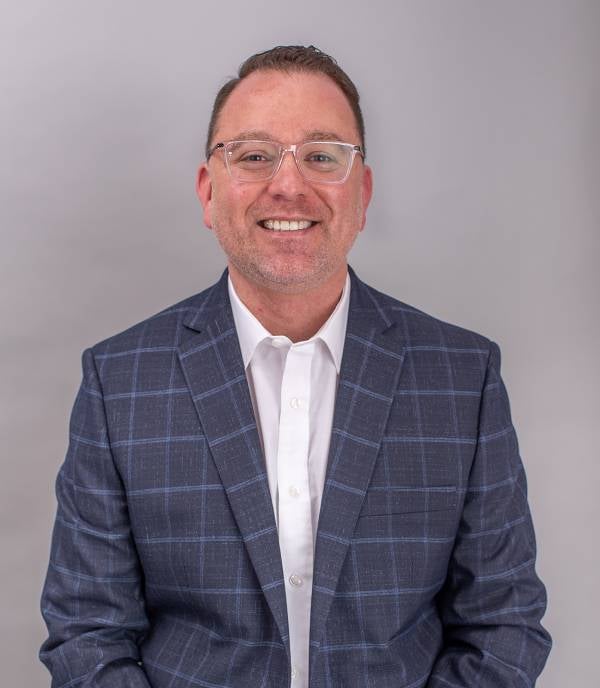
Professor and Interim Department Head, Kinesiology and Nutrition
College of Applied Health Sciences
Presentation Title: Moving in a Culturally Relevant Way
Bio: David X. Marquez, PhD, earned a doctoral degree and a master’s degree in kinesiology from the University of Illinois Urbana-Champaign and a bachelor’s degree in psychology from Loyola University Chicago. He is a professor and interim department head of kinesiology and nutrition and director of the Exercise Psychology Laboratory at the University of Illinois Chicago. He is also the leader of the Latino Core of the Rush Alzheimer’s Disease Center. His research focuses on reducing health disparities and primarily focuses on older Latino adults and individuals at risk for Alzheimer’s disease. He served as one of 17 experts on the 2018 Federal Physical Activity Guidelines Advisory Committee; and has been involved with many federally-funded, interdisciplinary, randomized controlled trials examining the cognitive, functional and psychosocial changes as a result of physical activity interventions. Marquez is a fellow of the Society of Behavioral Medicine, the Gerontological Society of America, the American College of Sports Medicine and the National Academy of Kinesiology.
Abstract: Exercising is good for you, but what if you don’t have any experience with our views of traditional exercise? This is the experience of many older Latino adults, a group that is rapidly growing in size. Exercise barriers exist, but few have examined the impact of Latin dance on health. Dancing has been called an age-appropriate physical activity for older Latinos; it challenges us both physically and cognitively; and perhaps most importantly, it is enjoyable and not boring and tedious to many. My lab, the Exercise Psychology Lab in the department of kinesiology and nutrition has been studying the topic of physical activity in the form of Latin dance among older Latinos since I started at UIC in 2007. I co-created the BAILAMOSTM dance program with Miguel Mendez, owner of the Dance Academy of Salsa. Our research has been funded by the NIH, the CDC, the Alzheimer’s Association and UIC. It shows that regular dancing increases overall physical activity participation, mobility and aspects of cognition such as memory. In the end, my hope is that other researchers will hear of our work and agree that moving is healthy, but also agree that we need to consider culture in promoting physical activity.
Watch the recording!
Tanera Marshall, MFA Heading link
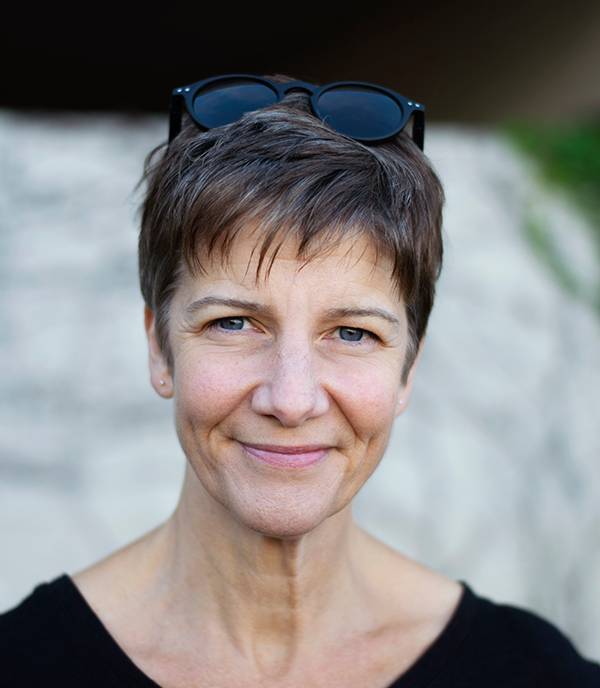
Associate Professor, Theatre and Music
College of Architecture, Design, and the Arts
Bio: Tanera Marshall is a voice and accent specialist in theatre, TV and film. Film credits include “The Brutalist” (Adrien Brody, coming this fall), last year’s “Hunger Games” (Rachel Zegler, Tom Blyth), “Asteroid City” (Jason Schwartzman), “Widows” (Elizabeth Debicki, Michelle Rodriguez), “Queen & Slim” (Daniel Kaluuya), “Public Enemies” (Marion Cotillard), “The Lucky Ones” (Rachel McAdams), and the “Divergent” series. Television credits include “The Bear,” (two seasons), “61st Street,” “Station Eleven,” “Fargo,” and “Chicago Fire” (12 seasons). Theatre credits: Broadway tours of “Hamilton,” “Billy Elliot,” and “Dirty Dancing,” and several productions at Steppenwolf, the Goodman Theatre, Congo Square Theatre, TimeLine, and Court Theatre.
Marshall has collected and archived accents from the Caribbean, Alaska and several First Nations/Native American communities for The International Dialects of English Archive, where she is a senior editor-at-large. She was a teaching artist in Chicago Public Schools for 10 years and a UIC University Scholars Award recipient in 2016. Her credentials include her BA (Oberlin), MFA (Depaul Theatre School) and Associate Teacher of Fitzmaurice Voicework®.
Presentation Title: Body and Soul: Storytelling in Accents
Abstract: Accents in theatre, TV and film must be compelling and true to “serve the story” well. This is best achieved with the use of real accents adapted from real people. The work of an accent specialist collaborating with actors involves not only analysis of the physical dimension of an accent but also consideration of its function as a rich biography of the person to whom the accent belongs.
Watch the recording!
Gholdy Muhammad, PhD Heading link
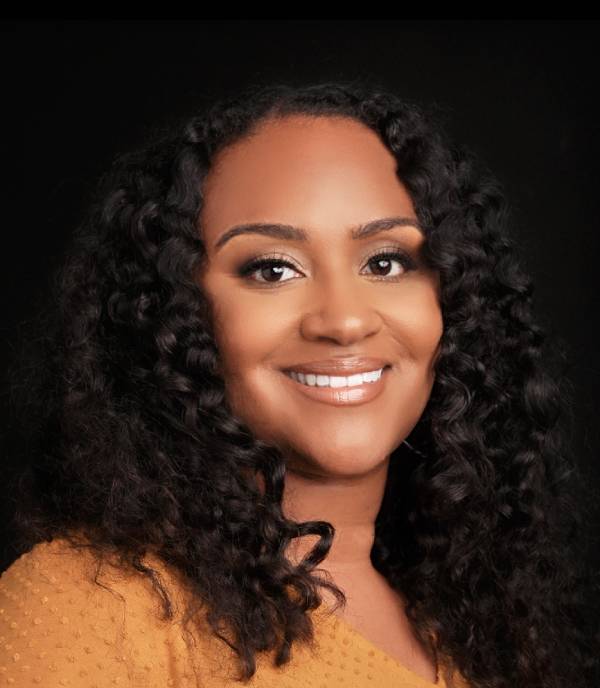
Associate Professor of Literacy, Language and Culture
Curriculum and Instruction
College of Education
Bio: Gholnecsar (Gholdy) Muhammad is an associate professor of literacy, language and culture at the University of Illinois Chicago. She has previously served as a classroom teacher, literacy specialist, school district administrator, curriculum director and school board president. She studies Black historical excellence in education, intending to reframe curriculum and instruction today. Muhammad’s scholarship has appeared in leading academic journals and books. She has also received numerous national awards and is the author of the best-selling books, “Cultivating Genius” and “Unearthing Joy.” Her Culturally and Historically Responsive Education Model has been adopted across thousands of U.S. schools and districts across Canada. In 2022, 2023, and 2024 she was named among the top 1% Edu-Scholar Public Influencers due to her impact on policy and practice.
Presentation Title: Cultivating Genius, Justice and Joy in Education
Abstract: In this talk, Muhammad centers three major pursuits of education that are often neglected when teaching and learning in schools: genius, justice and joy. She will discuss the historical excellence of Black Literary Societies from the early 1800s. These were some of the nation’s earliest book clubs and educational organizations designed to evaluate the academic and personal growth of Americans, yet this history is rarely known or taught in schools. Within Black Literary Societies, students learned language, science, mathematics, history, law, economics and art. It is through this history that Muhammad researched and developed a unique Culturally and Historically Responsive Education model toward the goal of educational excellence in PreK-12 and higher education. This model is essential for accelerating the growth of all students and uniquely youth/people of color, who have been historically excluded and underserved in schools within texts, learning standards, policies and pedagogical practices. Yet, this model helps educators teach in ways that is responsive to developing and elevating students’ genius, justice and joy. The model specifically has five goals of teaching and learning:
- Identity development — Helping students to make sense of who they are and the diverse lives of others and connecting pedagogy to diverse cultures and identities.
- Skill development — Helping students to develop proficiencies across the content areas, state learning standards and learning objectives.
- Intellectual development — Helping students to gain new knowledge that is set into the context of the world.
- Criticality — Helping students to name, understand, question and disrupt oppression (including anti-racism) within humanity and the world.
- Joy — Helping students to uplift and recognize the beauty, aesthetics, truth, and personal fulfillment within humanity and the world.
The audience will learn and understand history and the CHRE model with the goal of centering joy as the ultimate purpose for schools. Educators will be encouraged and motivated to be more inclusive of their teaching practices of these five collective pursuits while learning the importance of integrating cultural, racial, linguistic, and historical responsiveness into their learning goals, lesson plans and the texts they use to teach.
Watch the recording!
Dermot Murphy, PhD Heading link

Associate Professor, Finance
College of Business Administration
Bio: Dermot Murphy is an associate professor of finance at the University of Illinois Chicago. He specializes in public finance, fixed-income and high-frequency trading. He has worked closely with regulators at the Securities and Exchange Commission in Washington, D.C., and the Investment Industry Regulatory Organization of Canada on market structure issues. His public finance research on newspaper closures has been extensively covered by high-profile outlets such as the Washington Post and Forbes and has been cited in the most recent presidential election and the U.S. Senate. He has a PhD in finance from the Kellogg School of Management at Northwestern University.
Presentation Title: Financing Dies in Darkness? The Impact of Newspaper Closures on Public Finance
Abstract: Local newspapers have been closing at an alarming rate in recent years, and I show that unwatched local governments are more likely to engage in wasteful spending and consequently have greater difficulty borrowing money to fund crucial infrastructure projects. Our results indicate that local newspapers hold their governments accountable, thereby keeping public borrowing costs low and ultimately saving local taxpayers money.
Watch the recording!
Brian T. Murphy, PhD Heading link

Professor, Pharmaceutical Sciences
College of Pharmacy
Bio: Brian T. Murphy is a professor at the University of Illinois Chicago. He earned degrees in chemistry from the University of Massachusetts Dartmouth (BS/MS) and Virginia Tech (PhD). After two years of postdoctoral training in microbiology and chemistry at the Scripps Institute of Oceanography/UCSD, he joined the pharmaceutical sciences department at UIC in 2010. The Murphy lab focuses on applying high-throughput robotics and bioinformatics toward the discovery of antibiotics from aquatic bacteria that are collected around the globe using SCUBA.
He was recognized as a National Geographic Explorer and a Distinguished Lecturer for the American Society of Microbiology. In Chicago, his lab partners with local community centers such as the Boys & Girls Club to perform high-end biomedical research with middle and high-school students. Murphy’s program has been featured in Chemical & Engineering News, NPR, Science Daily, the Toronto Star, and the London Science Museum, among others.
Presentation Title: Partnering with the Boys & Girls Club of Chicago to Discover New Antibiotics
Abstract: With the growing threat of antimicrobial resistance, there is an urgent need to discover new antibiotics. Microorganisms are a major source of antibacterial drugs, but a typical pipeline employed for microbial drug discovery is highly time consuming and labor intensive. To address this, our lab has created innovate methods to improve the way that antibiotics are discovered. After nearly a decade of work, our lab has managed to shorten and automate this process through 1) the implementation of high-throughput robotics to process up to tens of thousands of samples; 2) the design of 3D printed bioassays to test these samples for antibiotic activity; 3) the creation of a bioinformatics pipeline to visualize the large volumes of data we create. Importantly, these advances had an additional effect: they broke down a major barrier toward implementing high-end biomedical research with young citizen scientists in surrounding underserved communities. Thus, this project has been integrated with educational outreach efforts in partnership with the Boys & Girls Clubs of Chicago. There are three central components to the program — field work, applied science experiments, and environmental literacy. Our goal is to inspire students from marginalized backgrounds to become the next cohort of university STEM majors through applied training in chemistry, microbiology, robotics, medicine and pharmacy. Early efforts have seen success, as not only do students express enthusiasm for the program, but also a middle school student and her mentor team have discovered a new cyclic lipopeptide that is currently being evaluated against a number of infectious diseases, in addition to malaria and cancer. In this brief presentation, this program will be discussed.
Watch the recording!
Michael Papka, PhD Heading link
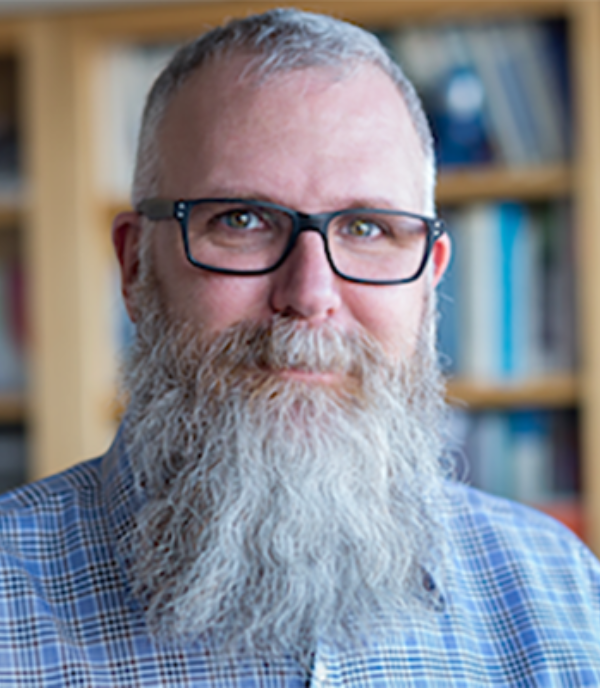
Professor, Computer Science
College of Engineering
Bio: Michael E. Papka is a professor of computer science and a member of the Electronic Visualization and SPEAR Laboratories at UIC. Papka’s teaching and research interests include high-performance computing, large-scale data analysis and visualization. He holds a joint appointment with Argonne National Laboratory, where he is a deputy associate laboratory director, the Argonne Leadership Computing Facility director, and a senior scientist. Before joining UIC, he spent 10 years at Northern Illinois University as the Presidential Research, Scholarship, and Artistry Professor of Computer Science. Papka received a BS in Physics from Northern Illinois University, an MS in Electrical Engineering and Computer Science from the University of Illinois Chicago, and his MS and PhD in Computer Science from the University of Chicago.
Presentation Title: 1,000,000,000,000,000,000: Quintillion Calculations Catalyzing Change
Abstract: Achieving a computing speed of 1,000,000,000,000,000,000 calculations per second marks a significant breakthrough in computational power. This achievement has far-reaching implications for the global research community. It accelerates research across multiple disciplines and inspires a new generation of scholars and innovators. The impact is particularly notable in academic environments, exemplified by institutions like the University of Illinois Chicago, where such advanced computational resources are catalyzing more ambitious scientific inquiries and fostering innovative thinking. This development promises to reshape the landscape of research and discovery, encouraging bolder and broader explorations in various fields.
Watch the recording!
Lisa Powell, PhD Heading link
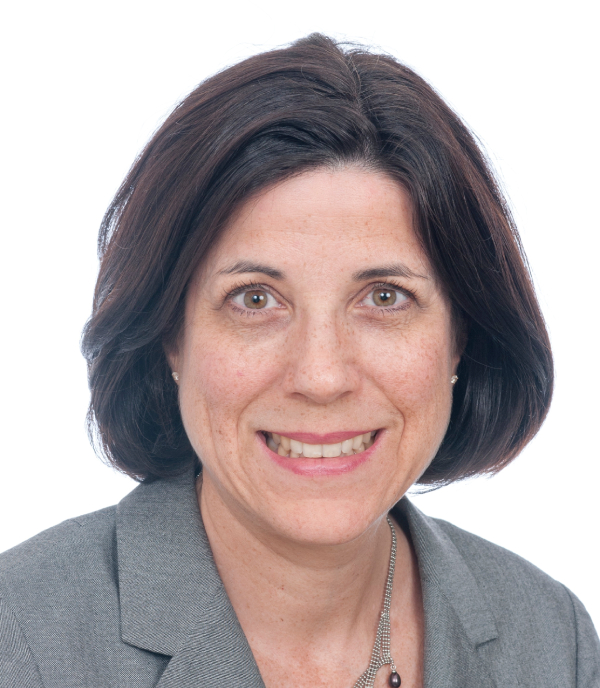
Distinguished Professor, Division of Health Policy
Director of the Policy, Practice and Prevention Research Center
School of Public Health
Bio: Lisa M. Powell, PhD, is a Distinguished Professor and director in the Division of Health Policy and director of the Policy, Practice, and Prevention Research Center in the School of Public Health at the University of Illinois Chicago. Powell’s research assesses the importance of economic and contextual factors on food consumption, physical activity and obesity outcomes, including related disparities; and, in particular, it contributes to evidence on food policy, health taxes and child-directed marketing. Powell’s research has been funded by Bloomberg Philanthropies, the Laura and John Arnold Foundation, the Robert Wood Johnson Foundation, CDC, NIH and USDA, and she serves on national and international expert advisory committees.
Presentation Title: Fiscal Policies for Health
Abstract: Health taxes are used as a fiscal policy instrument aimed at reducing individuals’ harmful consumption of products such as tobacco, alcohol and sugar-sweetened beverages with the ultimate goal of reducing adverse health and other outcomes linked to the consumption of such products. The economic framework for health taxes has multiple goals: to reduce demand for the taxed products in order to reduce consumption-related “externalities” (e.g., additional publicly funded health care costs, productivity costs) and “internalities” (e.g., inconsistent time preferences related to individual harm), and to generate revenue that can be used to fund complementary health promotion efforts. The key mechanism through which this occurs is that taxes generally result in higher prices for consumers, known as tax pass-through. Evidence from both demand models and tax evaluations shows that higher prices/taxes on products such as tobacco, alcoholic beverages and sugar-sweetened beverages reduce the consumption of these products. However, to fully understand the underpinnings of the net impact on consumption and ultimately health outcomes, it is also important to understand the extent to which taxes may induce substitution within types of the taxed products (e.g., to cheaper brands) or products taxed at relatively low rates and to non-taxed products (some of which may also be harmful to health) and the extent that consumers may undertake explicit tax avoidance behaviors such as cross-border shopping. That is, substitution and tax avoidance behaviors influence consumption of taxed and untaxed products and may to some extent offset improvements in health and other outcomes. Indeed, studies have found that higher health taxes are associated with some degree of cross-border shopping. The implementation of health taxes can face a number of challenges. For example, a concern frequently raised by industry when such taxes are being proposed is that they will lead to job losses. However, it is important to keep in mind that when consumers reduce their purchases of the taxed products they will reallocate their spending to other goods and services and governments will spend the revenue generated by the tax; and non-industry funded empirical evidence has generally found no impact on employment. With respect to impacts on health outcomes, evidence shows that higher cigarette prices and taxes are associated with lower levels of cancer and respiratory disease and overall mortality and higher prices/taxes for alcoholic beverages are associated with reduced health risks (e.g., liver cirrhosis) and other harms (e.g., accidents, violence). However, there is limited evidence that links SSBs and other food prices/taxes to health outcomes as these taxes are relatively new. Rigorous empirical evidence related to both intended and unintended consequences of health taxes is critical for policymakers in order for them to design evidence-based efficient fiscal policies to improve population health.
Watch the recording!
Barbara Ransby, PhD Heading link
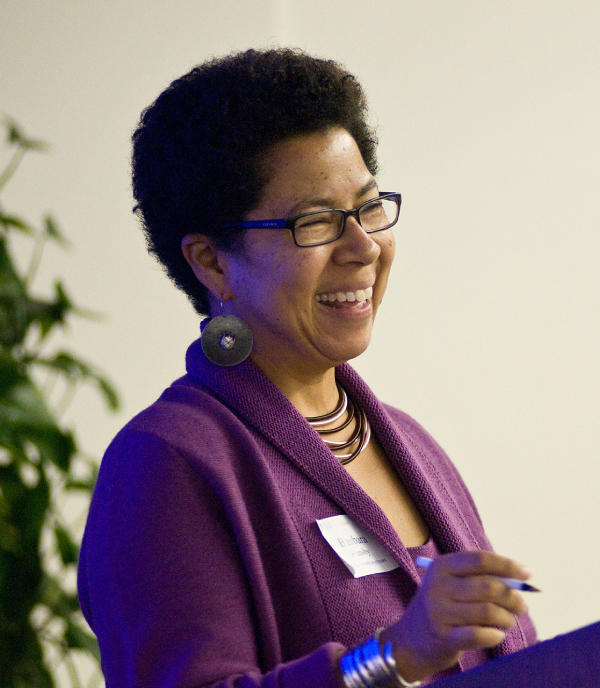
John D. MacArthur University Professor and Distinguished Professor of Liberal Arts and Sciences in Black Studies, Gender and Women’s Studies and History
Founding Director of The Social Justice Initiative
College of Liberal Arts and Sciences
Bio: Barbara Ransby is the John D. MacArthur University Chair and Distinguished Professor of History, Gender and Women’s Studies, and Black Studies at UIC, where she is the founding director of the Social Justice Initiative. She is the author of three books: “Ella Baker and the Black Freedom Movement,” “Eslanda: The Large and Unconventional Life of Mrs. Paul Robeson,” “Making All Black Lives Matter: Re-imagining Freedom in the 21st Century,” and numerous articles. Ransby’s books have received awards from the American Historical Association, the Organization of American Historians, and the American Studies Association. In 2017, Ransby was honored as “one of the top 25 women in higher education,” by the publication, Diverse Issues in Higher Education, and in 2018, the Chronicle of Higher Education cited the Baker biography as “one of the most influential books of the last twenty years.” Dr. Ransby is the former Editor in Chief of the journal Souls and is on the editorial working group of the London-based journal, Race and Class. Former president of the National Women’s Studies Association (2016 to 2018), she is an elected member of the Society of American Historians and has received several lifetime achievement and career awards. In 2020 Ransby was an inaugural recipient of the prestigious Freedom Scholars Award from the Marguerite Casey Foundation.
Presentation Title: Why Engaged Scholarship is So Important to the Mission of UIC and What That Work Looks Like on Our Campus in 2024
Abstract: This short presentation will outline why social justice research and community engagement at UIC are critically important to our mission as a public urban university with stated commitments to diversity, equity and inclusion and to serving the public good. It will highlight the research teaching, and service of a distinguished and robust community of social justice scholars and teachers, and specifically the role of the Social Justice Initiative, and other units, as catalysts for this work over the past 10 years, earning us national recognition from philanthropic, academic and civic partners locally and nationally.
Watch the recording!
Jung Mi Scoulas, PhD Heading link

Assistant Professor and Assessment Coordinator
University Library
Bio: Jung Mi Scoulas is an assistant professor and assessment coordinator at the University of Illinois Chicago Library, holding a PhD in educational psychology from UIC. Specializing in assessment, research design and student learning, she cultivates a culture of assessment, plans and implements assessment initiatives, and provides training and consultations. Her research focuses on assessing library practices to foster academic success among students and faculty. Currently, as the principal investigator, Scoulas and her team have secured a $250,000 grant from the Institute of Museum and Information Science (2022-24), aiming to develop assessment tools examining the academic engagement of undergraduate students in partnership with Northern Illinois University. She received the Illinois Association of College & Research Libraries People’s Choice Award in 2021, 2022 and 2023 for three selected articles, acknowledging her outstanding research contributions. She was the Research Scholar at the Association of Research Libraries DEI Institute Task Force and currently serves as a column editor for Strategic Planning and Assessment at the Journal of Library Administration.
Presentation Title: Rethinking Student Success Metrics: Insights from Undergraduate Students
Abstract: Academic libraries are integral partners of the institution, playing a pivotal role in enhancing student success by providing spaces, resources and services tailored to meet students’ needs. The previous findings from the University Library’s ongoing assessments have sparked an intriguing question: Do the definitions of “academic success” set by institutions align with the students’ individual perspectives of academic success? Collaborating with Northern Illinois University, our research project, funded by the Institute of Museum and Library Services, developed assessment tools to investigate the correlation between an individual’s ability to regulate their behaviors, their academic engagement, and further explore their personal definition of academic success. During a pilot phase at UIC last year, we asked students to define academic success through surveys and online journals, inviting them to share their unique perspectives. I will share the preliminary findings obtained from our undergraduate students. My presentation invites collaboration with the University Library, academic programs, and student support units to create a supportive and inclusive environment for our students.
This research project was granted funds from the Institute of Museum and Library Services for the years 2022 to 2024 under the National Leadership Grants Program (LG-252338-OLS-22). More information about this research project.
Watch the recording!
Michael Seng, JD Heading link
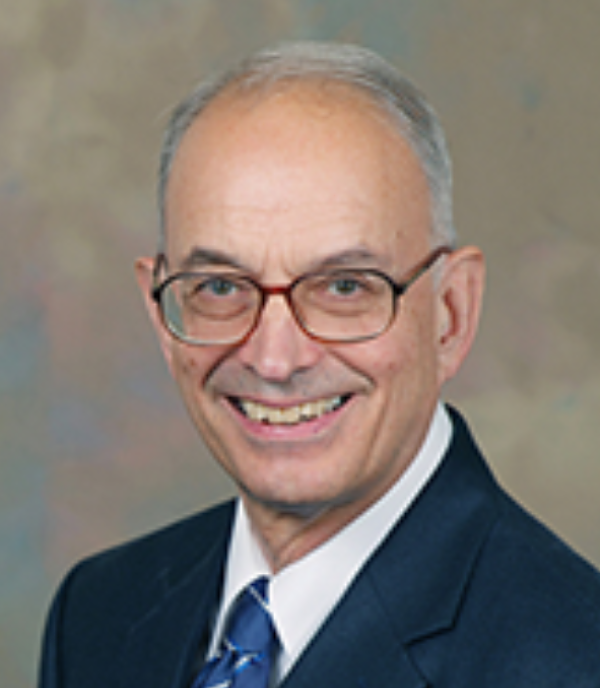
Professor and Director, Fair Housing Legal Support Center
School of Law
Bio: Michael P. Seng is a professor of law and teaches in the areas of constitutional law, civil rights law, federal courts and restorative justice. He is the director of UIC Law’s Fair Housing Legal Support Center. In 2003, he was awarded a Pioneer of Fair Housing Award by the U. S. Department of Housing and Urban Development. He has been a Fulbright Professor in Nigeria and has regularly taught in the Czech Republic, Taiwan and China. He has co-authored books on eyewitness testimony and restorative justice and has written articles on fair housing law, mortgage lending discrimination and testing.
Presentation Title: The UIC Restorative Justice Project
Abstract: UIC Law’s Restorative Justice Project teaches students the philosophy and practice of restorative justice. Guest lecturers present different perspectives on how restorative practices may be used to resolve disputes in law and in everyday life. Students intern at the Union League Boys & Girls Clubs in Pilsen and Humboldt Park, where they mentor elementary and secondary school students who have behavioral or other problems through individual counseling or in peace circles. The program benefits the law students by placing them in challenged communities and teaching them dispute resolution techniques. It benefits the elementary and secondary students by modifying their behavior and providing them with role models.
Watch the recording!
Scott Tomar, DMD, DrPH Heading link

Professor, Pediatric Dentistry
Associate Dean for Prevention and Public Health Sciences, College of Dentistry
Bio: Dr. Scott Tomar is a professor and the associate dean for prevention and public sciences at the University of Illinois Chicago College of Dentistry. He is a past president of the American Board of Dental Public Health, the Oral Health Section of the American Public Health Association, the American Association of Public Health Dentistry and the Behavioral, Epidemiologic and Health Services Research Group of the International Association for Dental Research. Tomar has published approximately 180 journal articles and book chapters and contributed to seven reports of the U.S. Surgeon General. He is a former editor of the Journal of Public Health Dentistry and Journal of Evidence-Based Dental Practice and has received numerous awards, including IADR’s H. Trendley Dean Distinguished Scientist Award. Tomar received his BA and DMD degrees from Temple University, an MPH degree from Columbia University, and a certificate in Dental Public Health and DrPH degree in Oral Epidemiology from the University of Michigan. Tomar served in the Centers for Disease Control and Prevention’s Epidemic Intelligence Service and is a Diplomate of the American Board of Dental Public Health.
Presentation Title: UIC College of Dentistry Is a Major Provider of Community-based Oral Health Outreach, Prevention and Treatment Services
Abstract: UIC College of Dentistry graduates more new dental professionals than any other institution in the state of Illinois, including 125 DMD students and 100 post-graduate students each year. The college’s clinics treat more than 35,000 people each year. However, oral diseases remain the most prevalent chronic conditions in the state and the nation and there are profound inequities in oral health status and access to care. The mission of college’s Division of Prevention and Public Health Sciences is to reduce the incidence of largely preventable oral diseases, eliminate oral health disparities and create a workforce that can better serve the needs of historically neglected or underserved communities. The division has developed several programs and initiatives to help meet that mission. It has created service-learning programs throughout the four years of the predoctoral dental curriculum that provide stage-appropriate experiences in oral disease prevention, health promotion and disease management. In their first two years, students provide school-based and community-based oral health education and clinical prevention services, including dental sealants and fluoride varnish application. Students’ third-year experiences include provision of clinical care for persons with intellectual or developmental disabilities. In the final year in the DMD curriculum, students provide care for four to 16 weeks at one or more of the College’s 32 community partner sites, which includes federally qualified health centers, county health departments and jails, Veteran’s Affairs medical centers, and community hospitals. Through those experiences, students are exposed to a wide variety of health care delivery models and population groups and come to better understand the impacts of social determinants of health. UIC College of Dentistry students serve about 10,000 patients annually through those community-based service-learning experiences. The division recently developed a new clinical facility to provide students with experience in delivering value-based oral health care. The Pilsen Center for Oral Health Promotion is co-located with a UI Health medical clinic in Chicago’s Pilsen community. The center focuses on evidence-based interprofessional prevention and health promotion, and uses a minimally invasive approach to managing oral disease. This initiative is intended to provide dental students with hands-on experiences in working in a health care delivery model that incentivizes improvement in patient and community health outcomes rather than the volume of services. Such innovative approaches to oral health care delivery hold the promise of reduced disease burden, greater health equity, lower health care costs and improved quality of life.
Watch the recording!
Rachel Weber, PhD Heading link
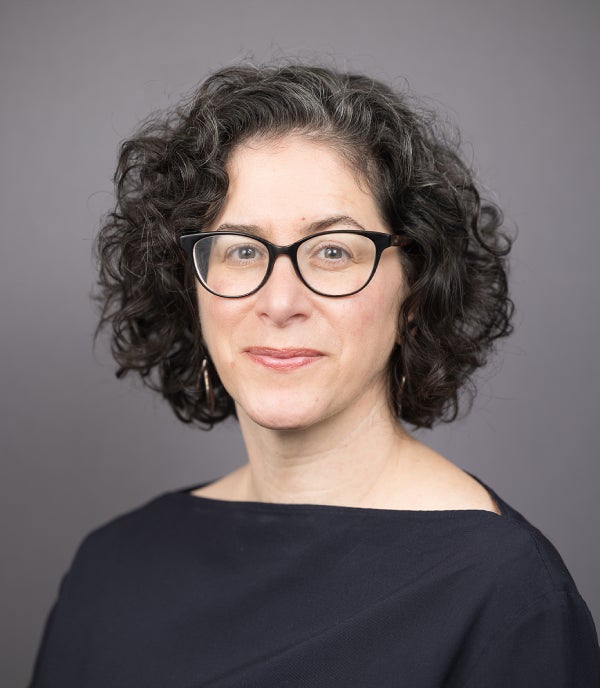
Professor, Urban Planning and Policy
College of Urban Planning and Public Affairs
Bio: Rachel Weber is a professor in the urban planning and policy department at the University of Illinois Chicago, where she teaches courses and conducts research in the fields of economic development, urban politics and public finance. Her research has advanced a novel approach to the study of city planning by examining the “financialization” of urban development. Cities’ deepening relationships with financial markets have brought about extensive changes in the ways they budget, fund infrastructure, and manage their assets. She is the co-editor of the “Oxford Handbook of Urban Planning,” a compilation of 40 essays by leading urban scholars. Her latest book, “From Boom to Bubble: How Finance Built the New Chicago” (University of Chicago Press, 2016) won the Best Book Award from the Urban Affairs Association. She is the author of over 50 peer-reviewed journal articles, numerous book chapters and published policy reports. She has served as an adviser to planning agencies and community organizations on issues related to financial incentives, property taxes and neighborhood change. She was appointed to then-presidential candidate Barack Obama’s Urban Policy Committee in 2008 and by former Chicago Mayor Rahm Emanuel to the Tax Increment Financing Reform Task Force in 2011.
Presentation Title: Sweet Relief? How Homestead Exemptions Affect Property Taxes in Cook County
Abstract: Complaints about high and burdensome property tax bills have stimulated legislative efforts to provide relief to taxpayers. Our research demonstrates that, while reducing the tax burden of individual homeowners, Cook County’s homestead exemptions also raise tax rates for all properties and shift the tax burden to nonresidential land uses. The consequences of homestead exemptions depend on the average property values and land use mix of each the taxing district such that a uniform policy like this one has inequitable effects when imposed on a variegated fiscal landscape. In particular, the rise in property tax rates due to homestead exemptions is disproportionately higher in the south suburbs than in the rest of Cook County. These effects can harm areas in need of private investment and job creation, and have prompted calls for more relief for other sets of taxpayers.
My talk is based on research conducted through UIC’s Government Finance Research Center in partnership with the Chicago Metropolitan Agency for Planning for Cook County’s Property Tax Reform Group.
Watch the recording!
Terrion Williamson, PhD Heading link
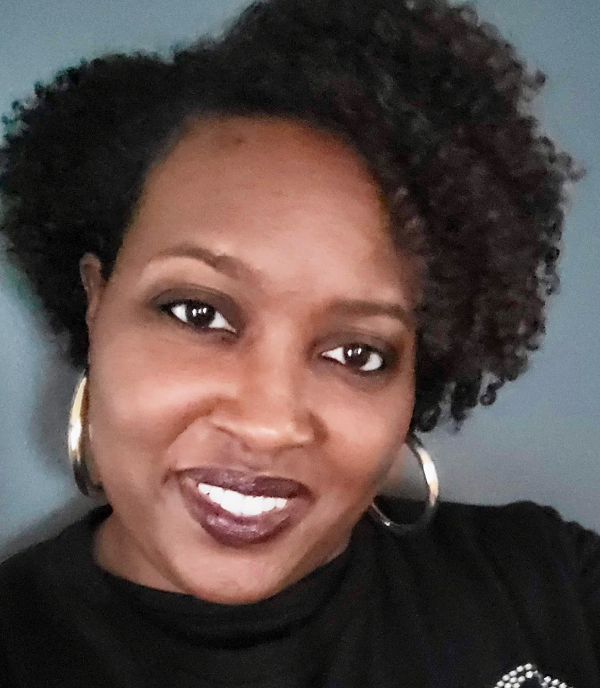
Associate Professor of Black Studies, Gender and Women’s Studies
Director, Black Midwest Initiative
College of Liberal Arts and Sciences
Bio: Terrion L. Williamson is an associate professor of Black studies and gender and women’s Studies at UIC. An alum of the Illinois system, she earned her BA in African American studies and English from UIC and her JD from the University of Illinois Urbana-Champaign. Her PhD in American studies and ethnicity is from the University of Southern California. She is the author of “Scandalize My Name: Black Feminist Practice and the Making of Black Social Life” (2017) and the editor of “Black in the Middle: An Anthology of the Black Midwest” (2020). Her current book project, “We Cannot Live Without Our Lives: Black Women and Serial Murder in the American Midwest,” centers on the story of a series of Black women who were killed in her hometown of Peoria, Illinois, between 2003 and 2004 and extends outward to address other Black Midwestern communities that have been affected by serial murder since the late 1990s. An unapologetic booster for the Midwest, she also serves as the founding director of the Black Midwest Initiative, a collective of scholars, students, artists, creatives, and community organizers who are committed to centering the greater Midwest as a critical site of Black struggle and possibility.
Presentation Title: Black Struggle, Power, and Resistance within the Greater Midwest
Abstract: This presentation will address my trajectory from UIC undergraduate student to faculty member and how I came to direct the Black Midwest Initiative.